Retail Week Awards 2018
Uncovering the winning strategies behind retail’s best and brightest

A very warm welcome to the 2018 Retail Week Awards, sponsored by Salesforce.
We’re delighted once again to recognise and celebrate the success of world-class retailing and our winners are testament to the industry’s ability to cater consummately for consumers.
Shopper habits are changing and the best retailers have shown their ability to adapt, maintain and renew their bonds with customers.
Thanks to our excellent panel of judges and to our supporters this year, in particular headline sponsor Salesforce.
Inside this digital guide we unveil how our esteemed winners scooped their awards, shining a spotlight on their strategies and the people behind their success.

The winners…
People and community
The AlixPartners Outstanding Contribution to Retail – Sir Malcolm Walker
The Clarity Retail Leader of the Year – Nick Beighton
The Oracle Store Manager of the Year – Rachel Hollins, Kingfisher
The Teleperformance Best Employer – Shop Direct
The Salesforce Community Retailer – Iceland
Best in class
The Barclays Partner Finance Best Retailer Under £250m – Missguided
The Salesforce Best Retailer Over £250m – Screwfix
The ClearPay Consumer Choice – Amazon
The Sorted International Growth Retailer – Asos
The OC&C Emerging Retailer – Gymshark
Category retailers
The Audit Partnership Best Grocer – Tesco
Best Value Retailer – Aldi
The Webhelp Speciality Retailer – Card Factory
The Infor Best Fashion Retailer – Matchesfashion
Innovation
The Itab Best New Store – Debenhams Stevenage
The American Express Own-Brand Range or Product – Go Outdoors
Marketing or Advertising Campaign of the Year – Asos
Customer Innovation – Tesco with Spoon Guru
The Cognizant Digital Pioneer – Screwfix
PEOPLE AND COMMUNITY
The AlixPartners Outstanding Contribution to Retail
Winner: Sir Malcolm Walker, founder, Iceland
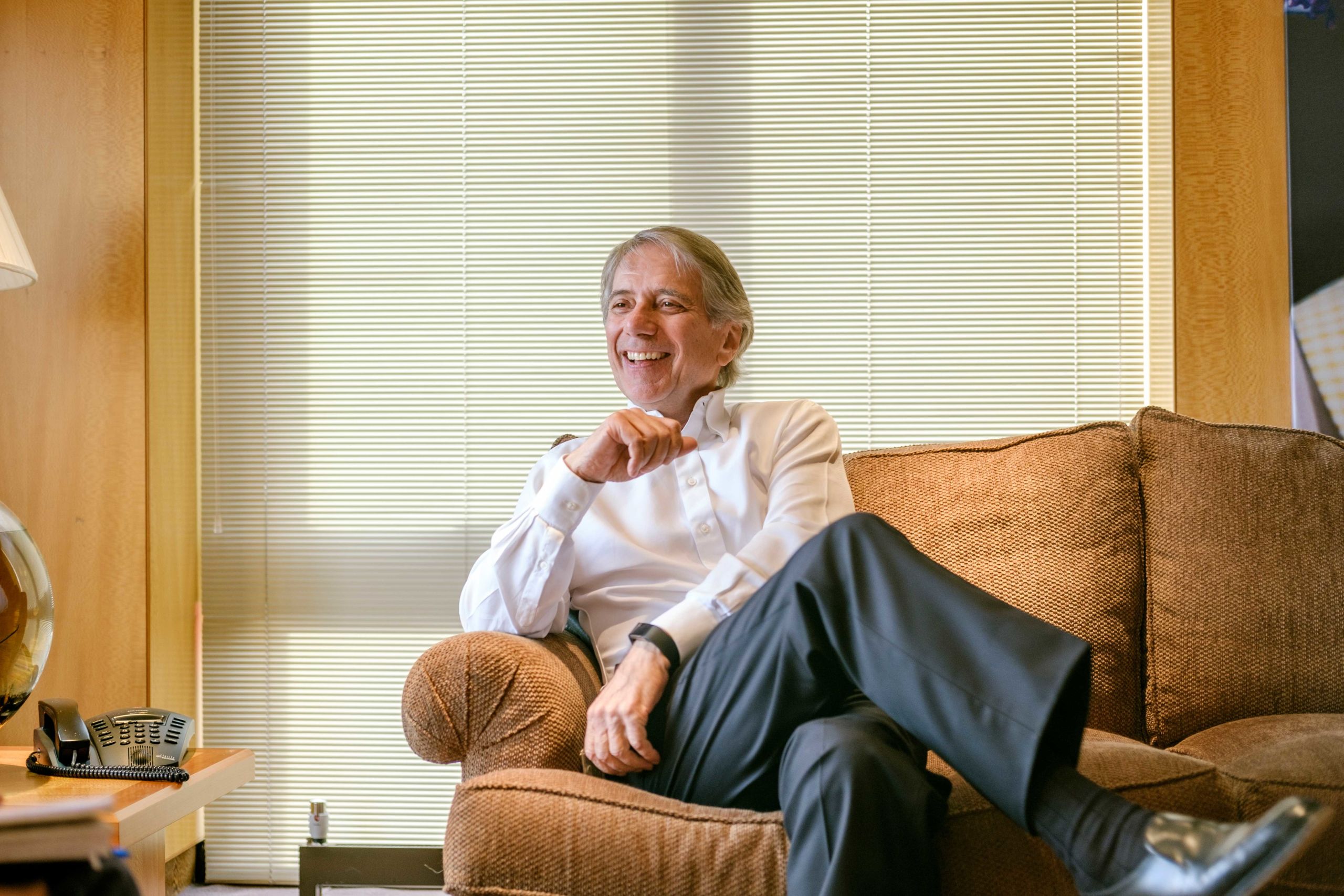
November 18, 1970 – it’s a date carved into retail folklore.
On that day, a 24-year-old deputy store manager from Woolworths joined forces with a colleague, Peter Hinchcliffe, to launch his own shop in the Shropshire town of Oswestry.
That store? Iceland Frozen Foods. That man? Sir Malcolm Walker, this year’s winner of the AlixPartners Outstanding Contribution to Retail Award.
A “complete academic failure”, Walker was rejected by Marks & Spencer and Littlewoods before starting his storied retail journey at Woolworths.
Walker spent seven years in the stockroom and on the shopfloor, but admits: “I hated it. I was no good at it. What it did teach me, though, was resourcefulness.”
It was a trait put to the test when Woolworths found out about his and Hinchcliffe’s side-project in January 1974 and unceremoniously sacked the pair.
“That was it,” Walker says. “We had no choice but to make it work.”
And they did just that.
In 1984, the business floated on the London Stock Exchange, giving Iceland the firepower to acquire 500-store rival Bejam.
Despite enabling it to grow rapidly, Walker laments going public.
“Once you’re a public company, the mentality is totally different,” he suggests. “We had a great relationship with the shareholders and the City for quite a few years.
“Then, of course, sentiment changes. The regulatory markets tightened up and it meant you couldn’t be quite as cavalier as you used to be. That style doesn’t suit us.”
It certainly doesn’t suit straight-talking Walker, as he reminisces about the other takeover he masterminded – that of cash-and-carry titan Booker, in 2001.
“I’d done 30 years. I’d had enough and I wanted to retire,” he says.
“The idea was for Stuart Rose to run the whole operation. We did the deal and it was immediately obvious he had no bloody interest at all.”
Best laid plans
The defection of Rose and his Booker protégé Charles Wilson to Arcadia left Walker’s plan to step down in tatters.
Having hand-picked former Wickes boss Bill Grimsey to take the reins, Walker adopted a more hands-off role.
But he eventually exited amid a probe from the Serious Fraud Office, relating to his sale of Iceland shares, although he was cleared of wrongdoing.
Without Rose and Wilson’s knowledge of Booker, the business faltered under Grimsey.
Yet Walker maintains the Booker deal was good for both parties – and insists it will prove successful for the wholesaler’s latest suitor, Tesco.
“It will work, but it’s the same principle. It’s not going to help the retail operation, it’s about back-office cost savings,” Walker muses.
“I think Iceland and Booker would have been the largest seller of Coca-Cola in Europe. So certainly Tesco, by a million miles, will be. However much they pretend they aren’t going to be strangling suppliers, of course they are.”
Retail visionary
Tesco’s £3.7bn splurge on Booker suggests Walker was maybe ahead of his time in engineering a near-identical deal all those years ago.
Despite his glittering career, the 72-year-old perhaps doesn’t get enough credit for being the visionary he is.
Iceland was the first food retailer to pilot home deliveries in 1996, it blazed a trail in ecommerce and stamped out genetically modified products – goods Walker calls “Frankenstein foods”.
And, earlier this year, Iceland pledged to eliminate plastic packaging on own-label products – driven by Walker’s son and Food Warehouse boss, Richard.
“Richard’s an environmentalist,” Walker explains. “It’s something he wanted to do, but balancing doing the right thing with making money can sometimes be difficult.
“Anyway, we are going to have a go. If every retailer says ‘we’re going plastic-free’, the world will change.”
"The reality is we’re not going upmarket – our customers are changing their aspirations"
Inventive approach
Yet Walker is far from done innovating. When he returned to the business he founded in 2005 following its takeover by Icelandic investor Baugur, he went “back to basics” to revive its fortunes.
But Walker has had to be more inventive since market dynamics underwent a seismic shift in 2012.
“The world changed, almost overnight,” Walker grimaces.
“You had Aldi and Lidl opening stores like they were going out of fashion, retail price deflation, the internet taking sales away from out-of-town supermarkets, the rise of the convenience store… It was a perfect storm.
“All that meant price was no longer a weapon. We struggled for a year or two in knowing what to do.”
Walker went on the offensive. Iceland launched its Power of Frozen campaign, ploughed investment into store refits and resurrected its transactional website.
Unsatisfied, Walker asked: “What’s the next generation of Iceland?” His answer: The Food Warehouse.
“I’d always resisted trying to go upmarket,” he explains. “You’ve got to know your market, you’ve got to know your customer and, over 35 to 40 years, we’ve had a very clear place in the market.
“But the reality is we’re not going upmarket – our customers are changing their aspirations.”
Changing aspirations
With the company “on the brink of bankruptcy” when Walker returned over a decade ago, his blueprint has put Iceland back on the front foot.
Walker is proud of those achievements, but the vehemence in his voice increases when conversation turns to everything he has given back to staff, his country and to charity.
“People say you can’t ever do well in business without being a complete bastard. That’s not true,” Walker protests. “I think I’m a nice guy and most of the staff would probably say that.
“But business generally gets an unfair reputation. If you’re a footballer, it’s okay to earn half a million pounds a week, no problem – and it’s only a bloody game. If a businessman did that, you’d be pilloried.
“I’ve made a lot of people very rich. In 10 years, we’ve paid £1.2bn in tax. That will help build a lot of hospitals and schools.
“Businessmen should be seen as heroes, not villains.”
Walker’s reputation hasn’t been tarred. In 1995, he was made a CBE and last year he received a knighthood for services to retailing, entrepreneurship and charity.
"Businessmen should be seen as heroes, not villains"
Charity work
The latter is particularly close to Walker’s heart – his wife of 40 years, Rhianydd, suffers from Alzheimer’s and Iceland has donated millions in the quest to cure the disease.
Walker led the charge in helping University College London (UCL) plug a £100m funding gap for a state-of-the-art research centre, using proceeds from the plastic bag levy.
Iceland alone has raised £10m in two-and-a-half years, and the remaining members of the UCL Dementia Retail Partnership – including Asda, Morrisons and Waitrose – have contributed the same between them.
The £20m total triggered funding from other sources, allowing the UCL project to go ahead.
“They say without us it wouldn’t have happened. That’s a great feeling,” Walker says.
So what does one of retail’s true legends see as his real legacy – his business, or his charity work?
Walker shrugs his shoulders. “I’m not thinking about legacy because I’m not going anywhere.”
The Clarity Retail Leader of the Year
Winner: Nick Beighton, chief executive, Asos
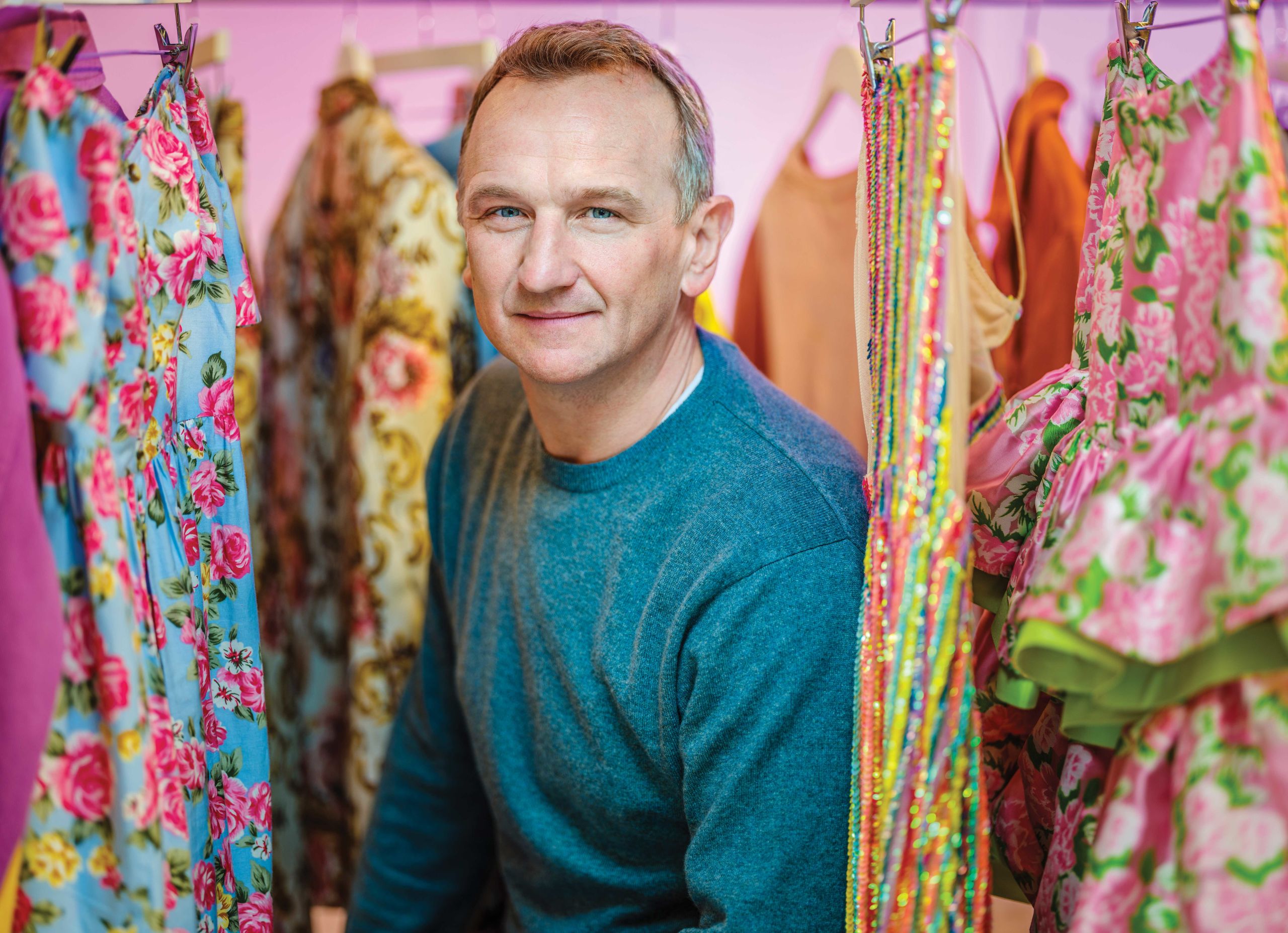
Asos boss Nick Beighton is in the unusual position of having succeeded a business’ creator and taken it to new heights.
He joined the etailer as chief financial officer in 2009, became chief operating officer in 2014 and succeeded founder Nick Robertson in 2015.
While he made it look easy from the outside, on the inside it has been a different story.
“I didn’t want to be CEO,” he admits. “It was totally daunting. I was quite happy being number two and at the side of the throne.
“Not having to do the jazz hands, not having to lead the team, not having to do all this kind of stuff.”
This “kind of stuff” means sitting in a meeting room discussing his leadership abilities with a journalist. Not that Beighton is shy and retiring, but he says: “I just didn’t have that need in me.
“It was a bit of a bad day when Nick [Robertson] came in and said, ‘Look Beefy, I think I’m going to go’,” he recounts. The nickname gives you an idea of how close the pair were.
Ritual and routine
Beighton began his career in KPMG’s Nottingham offices – a world away from Asos’ factory-style Camden HQ and millennial staffers.
Regional accountancy may not have been glamorous, but it has had a lifelong influence on him.
“I loved the mental discipline it taught me,” Beighton says.
“When I am stuck now, I have a level of confidence that I will get to the right answer by stepping back and getting out of the way of my brain.
“Because somewhere in that training there is a structured thought process that says, ‘If I get out of the way of my brain, it normally gives me the right answer’.”
After six years in practice, Beighton made the jump into management, joining Matalan as finance boss in 1999 and enjoying a stint as a finance director in the entertainment industry, before returning to retail with Asos in 2009.
The first hurdle
He joined a management team comprised of founder and chief executive Robertson, international director Jon Kamaluddin, trading and product director Robert Bready and chairman Waheed Alli.
Beighton describes those years as “transformational” for both product and ecommerce, but they weren’t without their challenges.
“I remember after three months I met Waheed for breakfast,” he says. “It was a pretty stripped-back conversation and he asked me what I’d learned.”
Beighton reeled off a list of jobs that needed doing, including faster processing of management accounts and better business planning.
“Waheed paused and he said: ‘Is that all you’ve learnt, Nick?’” Beighton remembers. “He said, ‘Nick, you’ve not learnt anything about the organisation. It works on momentum, it works on people, it works on belief, it works on fashion. What you have just described is outputs.’ I had failed the first test.”
Over the next six years, the Asos management team shrank from four to two, with “the two Nicks” acting as the left and right hand of the business.
But when Robertson first asked Beighton to take the reins, he turned him down.
It was only two weeks later, when Beghton’s wife asked when he was going to “stop messing around” that he began to come round to the idea.
“She said, ‘You know you can’t leave that. You know you won’t be able to let someone else do it,’” he recalls.
“I found it very humbling because Nick is one of the most inspirational people I’ve ever met, and he demonstrated an awful lot of belief in me because he wanted me to take the business he founded on to a new place. But it took a little while for me to get to that place.”
Scaling up
Decision made, Beighton was now faced with taking the organisation to that next level while trying to protect the values and culture embedded within it.
During his three-year tenure, revenues have grown from £1.1bn to £1.9bn and staff numbers have swelled to 4,000 in London and Hertfordshire.
Asos has also intensified its innovation in technology – in the last quarter of 2017 alone, Asos released around 700 tech updates, all geared towards improving customer experience. Four years previously, tech releases over the year numbered fewer than 100.
"In the last quarter of 2017 alone, Asos released around 700 tech updates, all geared towards improving customer experience"
Meanwhile, the etailer has exited China and international sales have nearly doubled.
Asos also faced allegations – which came to nothing after an investigation by MPs – that its distribution centre staff were being mistreated. Nonetheless, Asos responded by bringing the union community on board.
It’s no surprise, then, that Beighton has learnt a host of lessons along the way.
One uncomfortable lesson has been coming to terms with the level of exposure and criticism a chief executive can face.
“I never realised the level of scrutiny from all kinds of areas that a chief executive has to endure,” he admits. “I wanted to feel like the same person I always was, just with a different job title. But sometimes that’s a little bit of a simplistic view of life.
“It’s like the westward winds of change that blow you around – you have to be very clear on where you’re going and what you stand for and be steadfast.”
It’s not bad for a chief executive who admits his career has been “a happy accident”.
He may have been reluctant at first, but he’s ended up a winner.
The Oracle Store Manager of the Year
Winner: Rachel Hollins, store manager, B&Q Uttoxeter
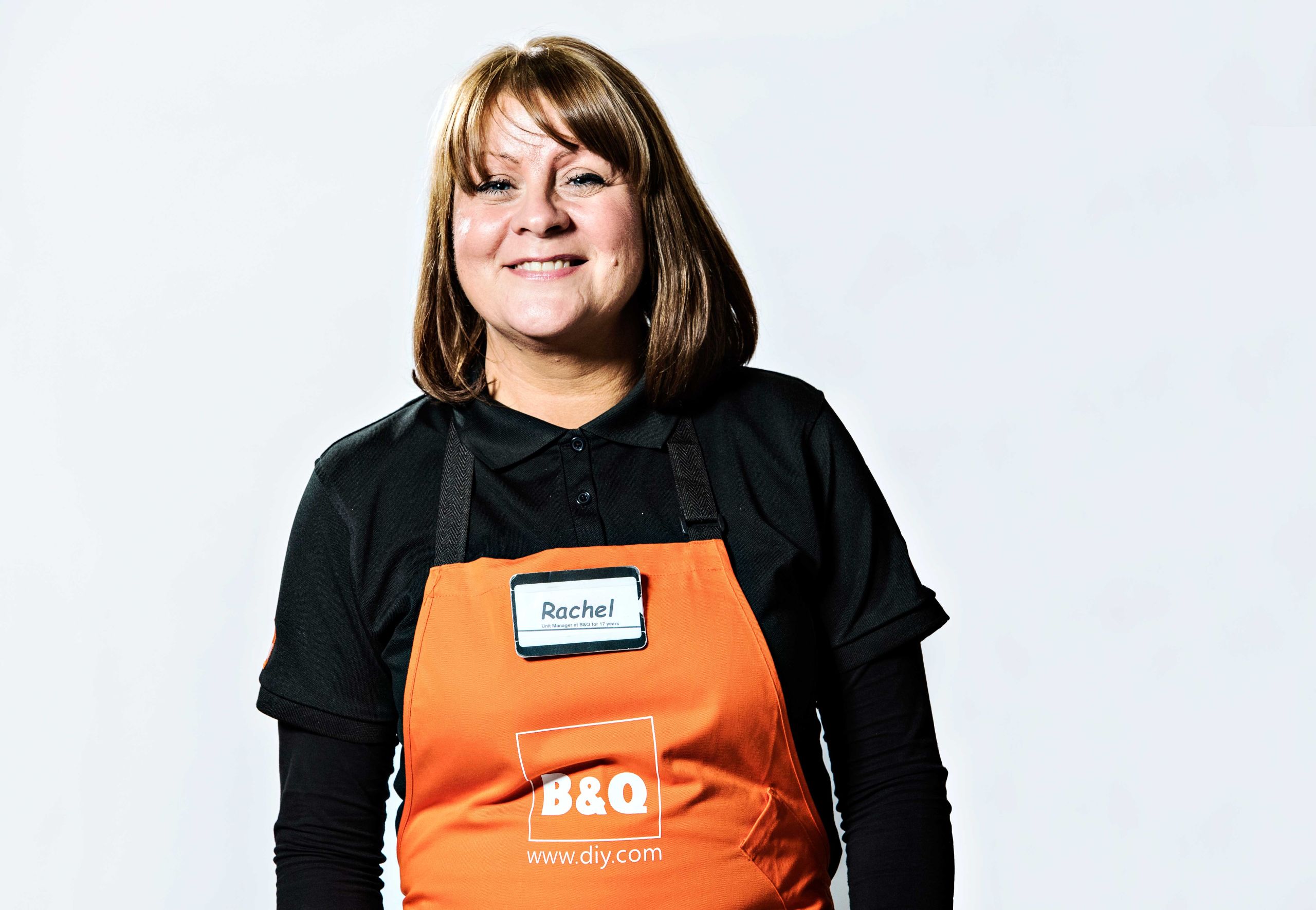
B&Q’s Hollins leads by example
In this hard-fought category, the judges were looking for excellent retail skills, inspirational leadership, proven management prowess and the ability to deliver the brand’s customer values.
In Rachel Hollins, who runs Kingfisher-owned B&Q’s Uttoxeter store in Staffordshire, they found a worthy winner.
The DIY giant said Hollins “proved herself to be a talented and determined leader, overcoming challenges with her endless energy and ability to engage and positively communicate with colleagues”.
Great coaching aptitude and the ability to build a management team, including appointments in key roles such as deputy manager, seasonal manager, showroom manager and decor manager, demonstrated her flair for the role.
Company-wide view
Hollins overcame the obstacles retailers face when integrating a new team, ensuring a positive outlook and finding ways of doing things that have benefited her team and B&Q more widely.
Her “palpable” energy has been enthusiastically received by her team and has “translated into commercial gain”, evidenced by strong like-for-like sales growth.
“She’s the whole package,” the judges concluded. “Commercially aware, passionate, sincere and authentic with total humility.”
"She’s the whole package – commercially aware, passionate, sincere and authentic with total humility"
Store of the year
In the past 12 months, Hollins has made her team at Uttoxeter a national success – the store beat 296 other branches to be named B&Q’s store of the year.
It was “overwhelmingly evident that the judges’ findings and the results matched the positive sales performance”, which was “the direct result of a highly engaged and motivated team that have worked together, under strong leadership, to deliver a retail experience that exceeds expectations”.
Hollins’ achievements typified B&Q’s focus on people development. She has embraced the retailer’s Rising Star programme, designed to train and progress customer advisors.
Personal ownership
Hollins is supporting the initiative across two regions and was prominent among her peers in engaging with the programme.
B&Q said: “Rachel stepped up and took personal ownership and responsibility for the growth of talent in the B&Q East Division, displaying the attributes of a true team player, while carving herself out as a natural leader with a strong aptitude for talent development.”
The judges were unanimous in their selection of Hollins as this year’s winner. She is also a great ambassador for the brand – she attended her interview for this award wearing her B&Q uniform.
Hollins is exactly the sort of leader any retailer could wish for on the customer front line.
The Teleperformance Best Employer
Winner: Shop Direct
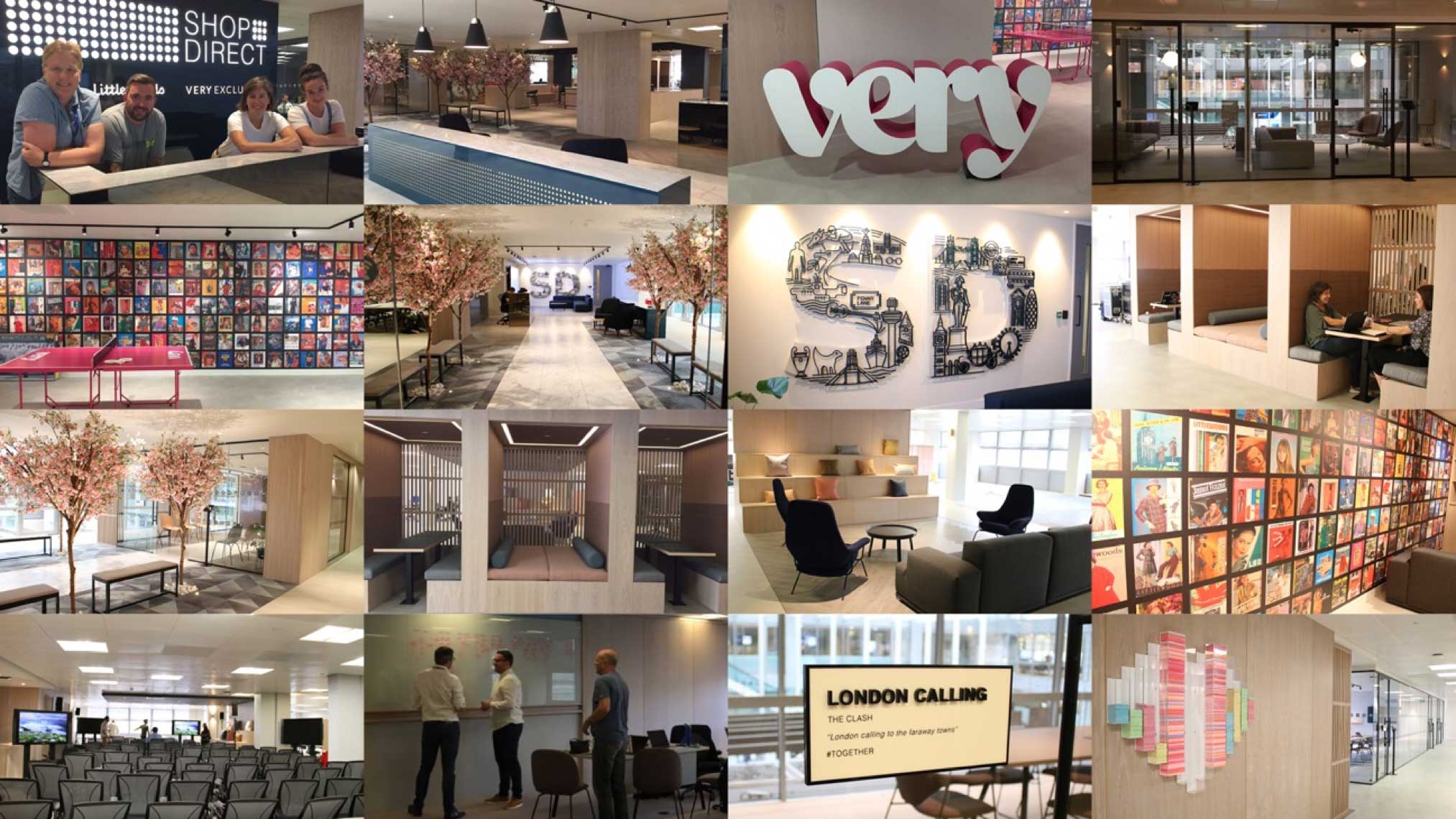
Shop Direct puts staff first
Not only is Shop Direct one of retail’s biggest transformation stories of the past decade, it has also been at the forefront of changing the profile of retail jobs.
The judges hailed Shop Direct for setting industry-leading standards as an employer with a programme that is benefiting staff.
Shop Direct has come of age as a progressive employer over the past year, with a co-ordinated programme of pioneering initiatives designed to empower staff, support new talent and offer opportunities to young people.
Impressive new hub
Perhaps the high point of the past year was the launch of Sky Victoria, a London hub that taps into the local pool of retail and digital talent.
Staff from its Liverpool head office can also split their time between the two bases, which has led to more collaborative working with external partners and a better work–life balance for many.
On top of that, Shop Direct has created degree-level apprenticeships to widen its talent pool. Since their launch in September, the retailer has received 500 applications for just 18 places.
The etailer is also sponsoring postgraduate courses, offering paid one-year undergraduate internships.
“I love its exploitation of academia and understanding of what it can offer,” said one judge.
"This year the retailer has sought to ‘bust the hierarchy’ to create a culture of self-led, experimental, peer-to-peer and social learning"
Not forgetting the 4,700 staff it already has, this year the retailer has sought to “bust the hierarchy” to create a culture of self-led, experimental, peer-to-peer and social learning.
Regular company-wide hackathons have been key to this and nearly 500 staff took part last year. One such event led to the creation of the customer chatbot Very Assistant.
Shop Direct also launched Perform Live, which offered staff the chance to hear from innovation gurus and transformation experts. Shop Direct employees snapped up 1,500 tickets in just 72 hours.
Colleague engagement is a strategic KPI for the business. It has maintained a score of more than 80% for the past five years. This year matched its highest ever score of 84%.
Staff empowerment
Its internal engagement survey shows 73% of staff feel empowered to make decisions, 70% believe Shop Direct is a “great place to develop” and 82% think the business cares about their health and well-being.
“Quite often businesses don’t think about well-being or trying to encourage their staff to be fit,” noted one judge.
“I just loved the ambition Shop Direct has shown.”
The Salesforce Community Retailer
Winner: Iceland
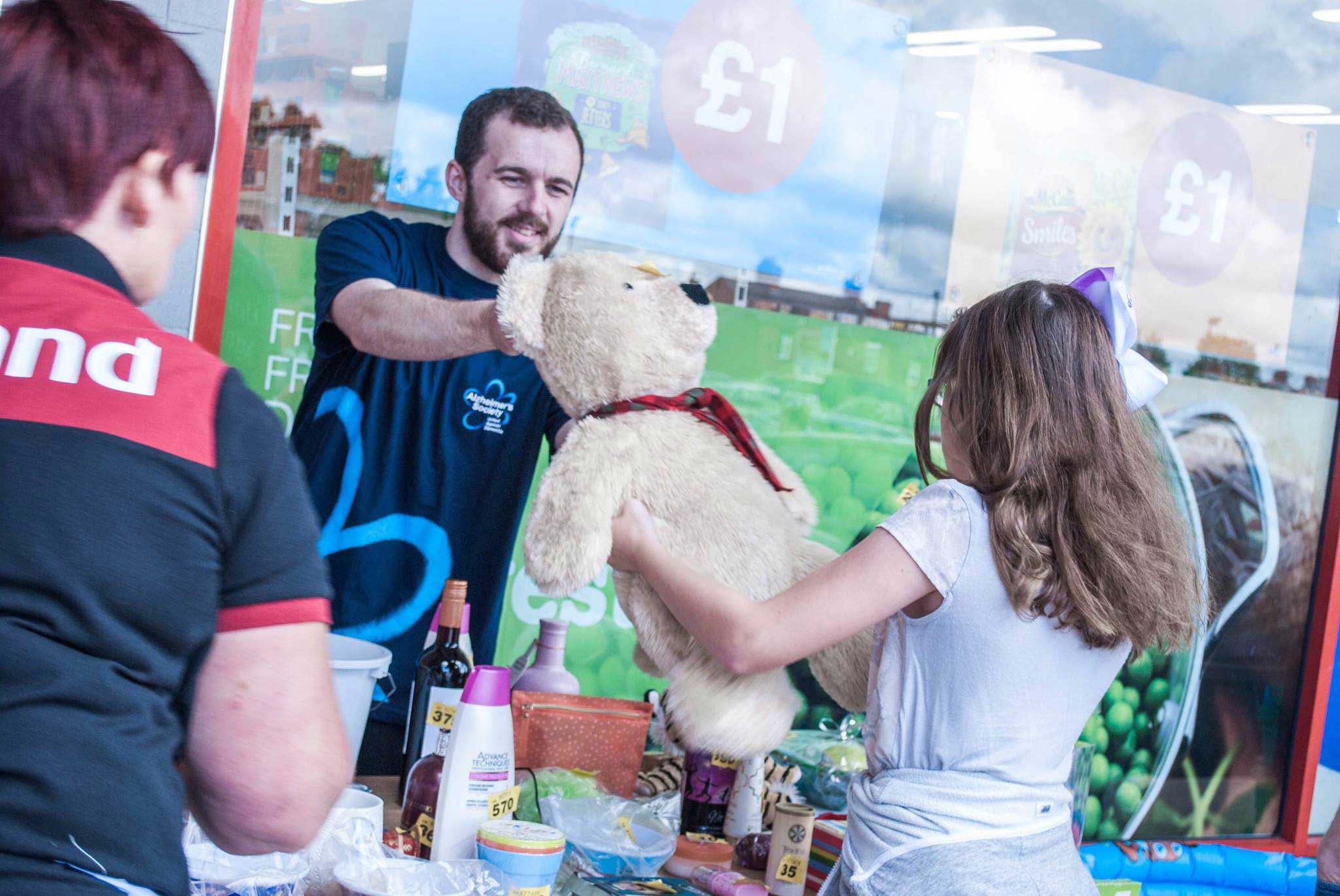
Iceland’s dementia crusade
Iceland is passionate about its Beating Dementia campaign and is determined “to help find a cure, effective treatment or preventive for dementia, and to improve the lives of those living with dementia until that can be achieved”.
Now the UK’s biggest killer, dementia currently affects 850,000 people – a figure that is set to exceed 1 million by 2025.
The Iceland Foods Charitable Foundation has focused its fundraising efforts on dementia since 2011, and has raised or pledged £12m to date, including £4m from the plastic bag levy.
Iceland’s backing for the cause is infectious. Founder Sir Malcolm Walker has persuaded fellow retailers to commit profits from plastic bag sales to University College London’s new Dementia Research Institute – for which judges praised Walker’s “entrepreneurial spirit”.
"What put the campaign ‘head and shoulders’ above other entries, judges said, was the dedication shown by training 23,000 staff to become ‘dementia friends’"
But what put the campaign “head and shoulders” above other entries, judges said, was the dedication shown by training 23,000 staff to become ‘dementia friends’.
Based on the fact that 1,000 people with dementia live in the vicinity of each of Iceland’s 900 stores, the programme was launched in October 2016. All front-line staff are now trained to recognise signs that a person might have dementia and know how to support them.
Iceland is looking at how lessons from the dementia friends scheme can be incorporated into its store refit programme, in a bid to improve the store environment for people living with the condition.
One judge said: “It is hard to imagine an issue being more embedded in the local community than making all of your staff dementia-friendly and aware.”
The Salesforce Community Retailer
Mark of excellence: Co-op
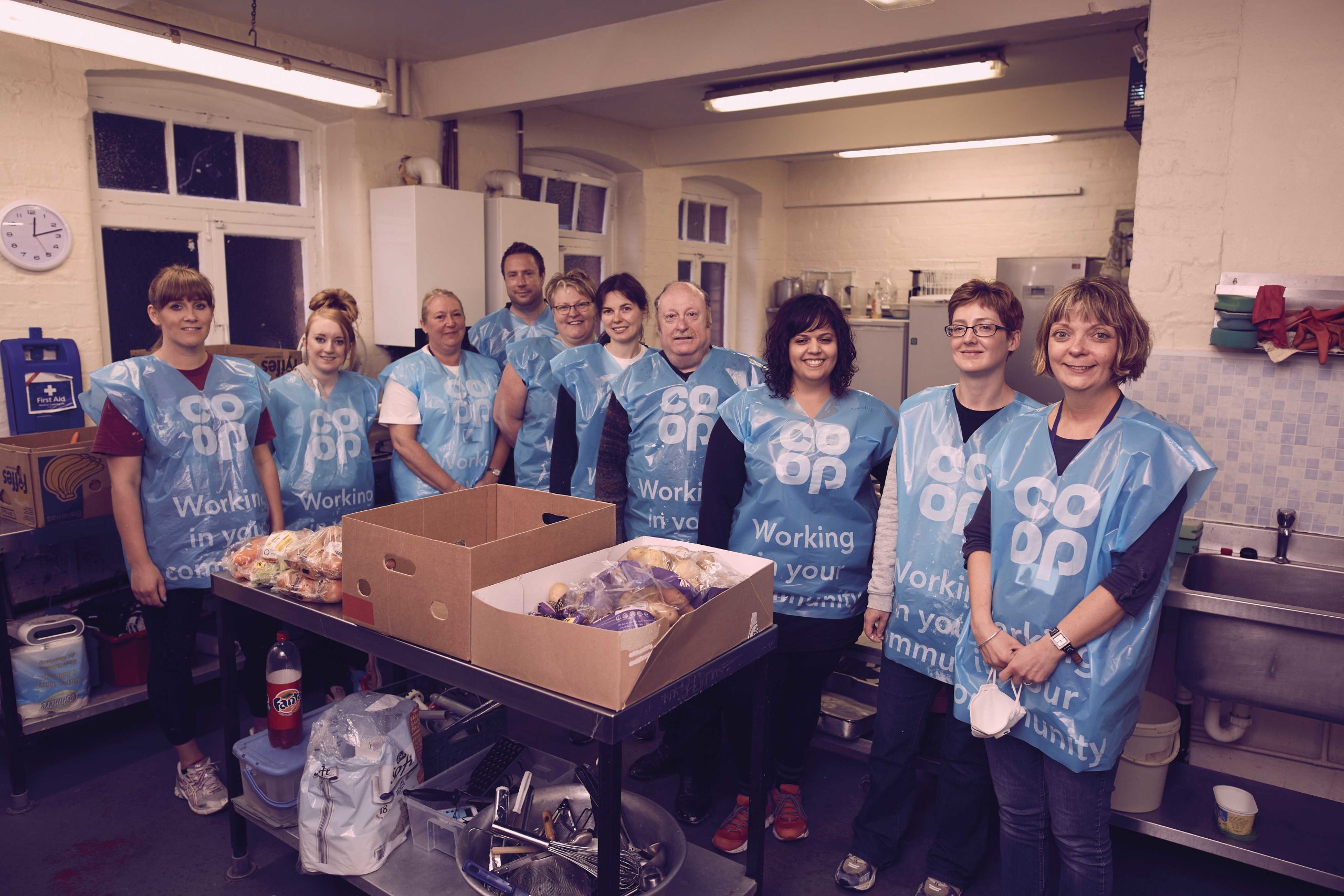
Community has traditionally been at the heart of the Co-op’s business, but the grocer is the first to admit it had lost touch some years ago. Through the Back to Being Co-op initiative, the judges believe the retailer has addressed that issue head on.
Led by chief executive Steve Murrells, it has brought major changes to membership. The Co-op now donates 1% to local causes when members buy own-brand goods and services.
Own-brand sales increased by 10% and the Co-op has given £9m to 4,000 good causes. That in turn has driven a 500 basis point increase in brand engagement.
One judge said former boss Richard Pennycook and current supremo Murrells had “done an extraordinary job in bringing those values back to the business”.
BEST IN CLASS
The Barclays Partner Finance Best Retailer Under £250m
Winner: Missguided

The rise of Missguided
In its mission to “empower females globally to be confident in themselves and be who they want to be”, Missguided has made a big splash.
The retailer, which has branched from online to offline, has turned heads with its ambitious multichannel model.
The Missguided story began with a loan of £50,000 in 2009. Since then, the business has expanded into new channels, looks and markets.
The big news in the past 18 months, though, has been its move into bricks and mortar.
In-keeping with its bold brand, Missguided’s physical presence has been about making big statements in prominent locations – Westfield Stratford City and Bluewater, in Kent.
In-store theatre
The idea has been to create an immersive brand experience, with floor-to-ceiling digital screens and mermaid mannequins.
This desire to make a splash is typical of Missguided, also evident in its distinctive website and four million-strong social media following.
Steered by founder Nitin Passi, Missguided has deployed modern techniques to connect with its 16- to 25-year-old target customer, from a shoppable Snapchat feature to innovative marketing with influencers like Baddie Winkle, the “world’s coolest grandma”.
As well as working with celebrities, influencers and bloggers, Missguided has drawn on its customer base to boost sales.
The retailer created a shoppable Instagram feed, called #BabesofMissguided, enabling customers’ outfits to be bought by others. The hashtag has been used more than 100,000 times.
"Missguided has deployed modern techniques to connect with its 16- to 25-year-old target customer"
Global expansion
The latest phase of Missguided’s development has been to expand overseas.
Now 30% of all sales are accounted for internationally, boosted by launches of dedicated websites in the US, Australia, France, Germany, Spain, Poland and Ireland.
The judges also agreed that Missguided deserved recognition for its fashion flair and tech prowess.
Such attention to technological detail was evident in Missguided’s focus on creating a frictionless checkout process, developing a ‘global checkout’ that sparked an uplift in completed transactions.
One judge said: “It feels and looks like a tech company. In many ways, Missguided is a very modern retailer.”
All-round proposition
Despite its innovative model, Missguided was also lauded for being a success story in traditional terms.
As one judge remarked: “Missguided has done a great job creating and developing its brand, it knows its customers well and it has a really well-differentiated offer.”
With soaring year-on-year growth overseas, Missguided has clearly found customers internationally who get the brand as well – and want more.
From its origins as a partywear specialist, Missguided has expanded into a raft of categories, adding bridal ranges and tapping into athleisure.
Passi sees plenty still to go for.
In an interview with Retail Week last year, Passi said: “My vision is to operate multiple brands the way Inditex and H&M do. Look at those two groups and the amount of stores they are putting out all over the world. It can still work if you get the recipe right.”
Facing up to challenges
As a young business, Missguided’s profitability has been variable, reflecting investment and the challenges of sustaining rapid growth.
Building a business always brings risks, as entrepreneurs try different ways of doing things. And there are inevitably potholes along the road.
After the awards judging day, Missguided revealed it was cutting around 50 of its 800 staff.
Passi said: “The pace of growth has left some of our teams less lean than they need to be.
“This is something we need to face into given our strategy, the tough market we play in and our ambition to continue fuelling rapid growth.”
Despite the turbulence, the judges were impressed by its achievements.
Missguided has demonstrated keen retail skills, customer understanding and innovation, making waves in retail.
The Salesforce Best Retailer Over £250m
Winner: Screwfix
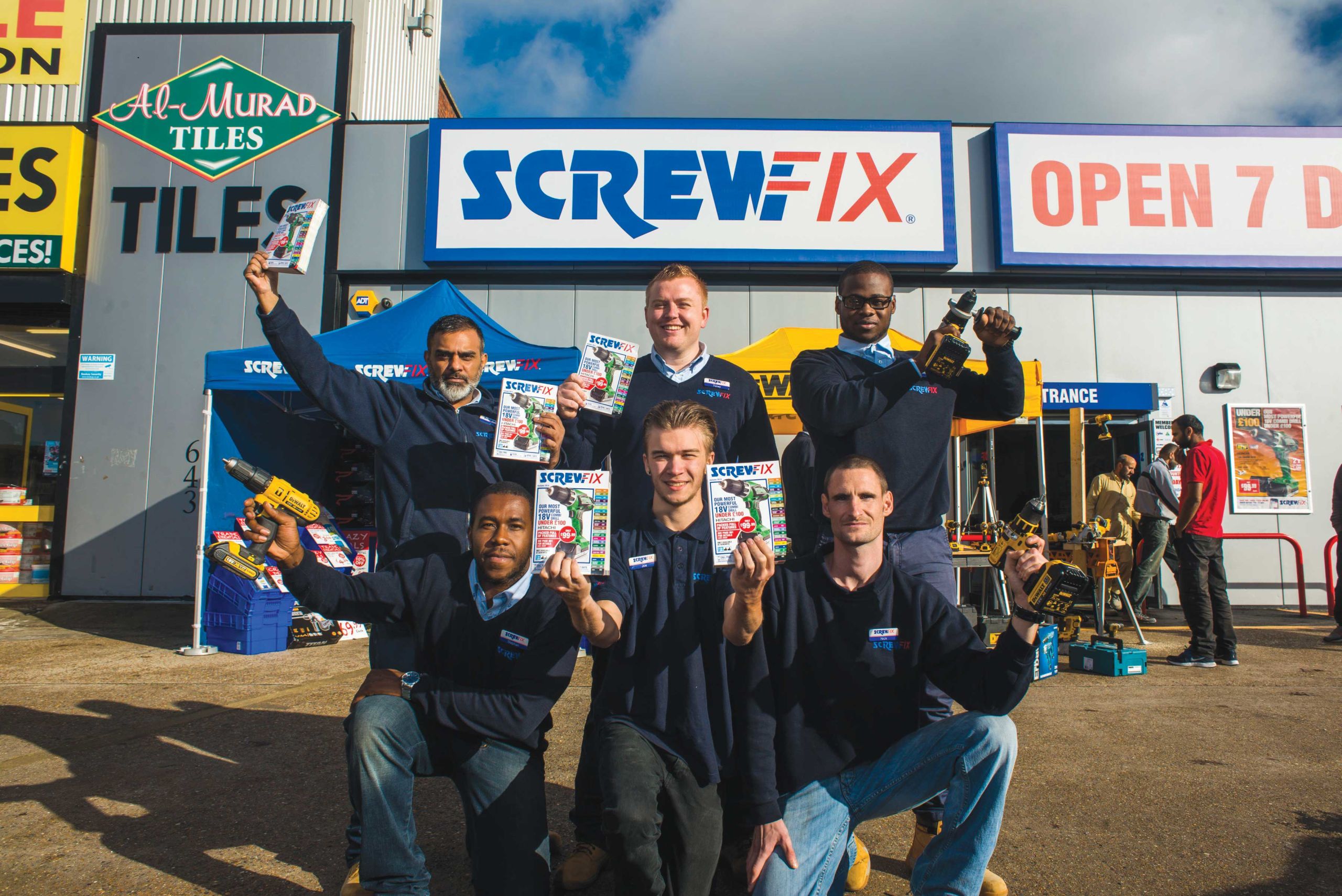
Screwfix has become a retail success by not thinking of itself as a retailer. The Kingfisher-owned brand sets out instead to be the “best possible business partner” to the UK’s 165,000 tradespeople.
It is that affinity with customers, their needs and frustrations that keeps Screwfix ahead of the curve.
Over a cuppa – builder’s tea, obviously – at the Screwfix head office in Yeovil, chief executive Graham Bell explains how the old adage of ‘putting the customer first’ has fuelled the company’s transformation from a small mail-order specialist to 530-store multichannel powerhouse.
Knowledge is power
While Screwfix’s humble beginnings may now seem like a distant memory, those roots are partly what has enabled it to stay close to its customers’ needs and exploit multichannel opportunities.
Screwfix’s origins as a catalogue business and then a website mean that, from day one, it has been able to leverage customer data.
“We know all our customers and can see what they are buying,” says Bell.
Many retailers can only dream of having such volumes of customer data and – Screwfix shows how effective smart use of it can be.
Trend-spotting
It allows the retailer, for instance, to personalise its marketing and to spot more unusual shopping trends, such as the propensity for its trade customers to buy products for home use.
“It means we can look at where to broaden the product range, too,” Bell says.
In terms of scale and power, Screwfix is, as one judge put it, a “juggernaut of a business”. Yet it is simultaneously as agile and nimble as a Mini Cooper.
Screwfix has been particularly busy over the past year keeping its community of both old-school and tech-savvy tradespeople happy.
In response to customer feedback, Screwfix introduced digital click-and-collect kiosks in selected stores, which have reduced waiting times.
Combined with the ability to pick up items just one minute after ordering, the result has been a 47% click-and-collect surge.
"It is its affinity with customers, their needs and frustrations that keeps Screwfix ahead of the curve"
Responding to another customer frustration – paperwork – Screwfix updated its app so that trade shoppers can create lists, save receipts and host their Screwfix card in one place.
The judges were also impressed by the retailer’s bricks-and-clicks strategy – it opened 60 stores last year.
Screwfix is eyeing a portfolio of around 700 sites, but Bell says its bricks-and-mortar presence could expand beyond that as demand grows in market towns.
Indeed, the home improvement project is never complete at Screwfix. It may be the jewel in Kingfisher’s crown, but Bell says there is more to do.
For example, Screwfix is piloting same-day deliveries in London. “We found it wasn’t going to be viable without charging for it, and I was really worried about that,” Bell admits. “But it turns out the cost isn’t even a consideration. If someone needs a small thing urgently for a job, they say it’s worth it for the time saved.”
As the company progresses and grows, Bell is also eager to make sure that everything, from the PoS in stores to the head office structure, is kept simple for every member of staff.
The proliferation of start-ups means that – like most businesses – even the super-agile Screwfix faces the risk of disruption.
Embracing change
Staying on top of emerging technologies will be key to the business retaining its crown.
But Bell’s attitude towards disruption is sanguine. “It’s becoming easier for people to disrupt,” he says. “There are always disruptors, but they just enable you to change and improve.”
And at the suggestion Screwfix could lose its agility or customer understanding, Bell signs off with a word of warning for rivals: “We are the future.”
The ClearPay Consumer Choice
Winner: Amazon
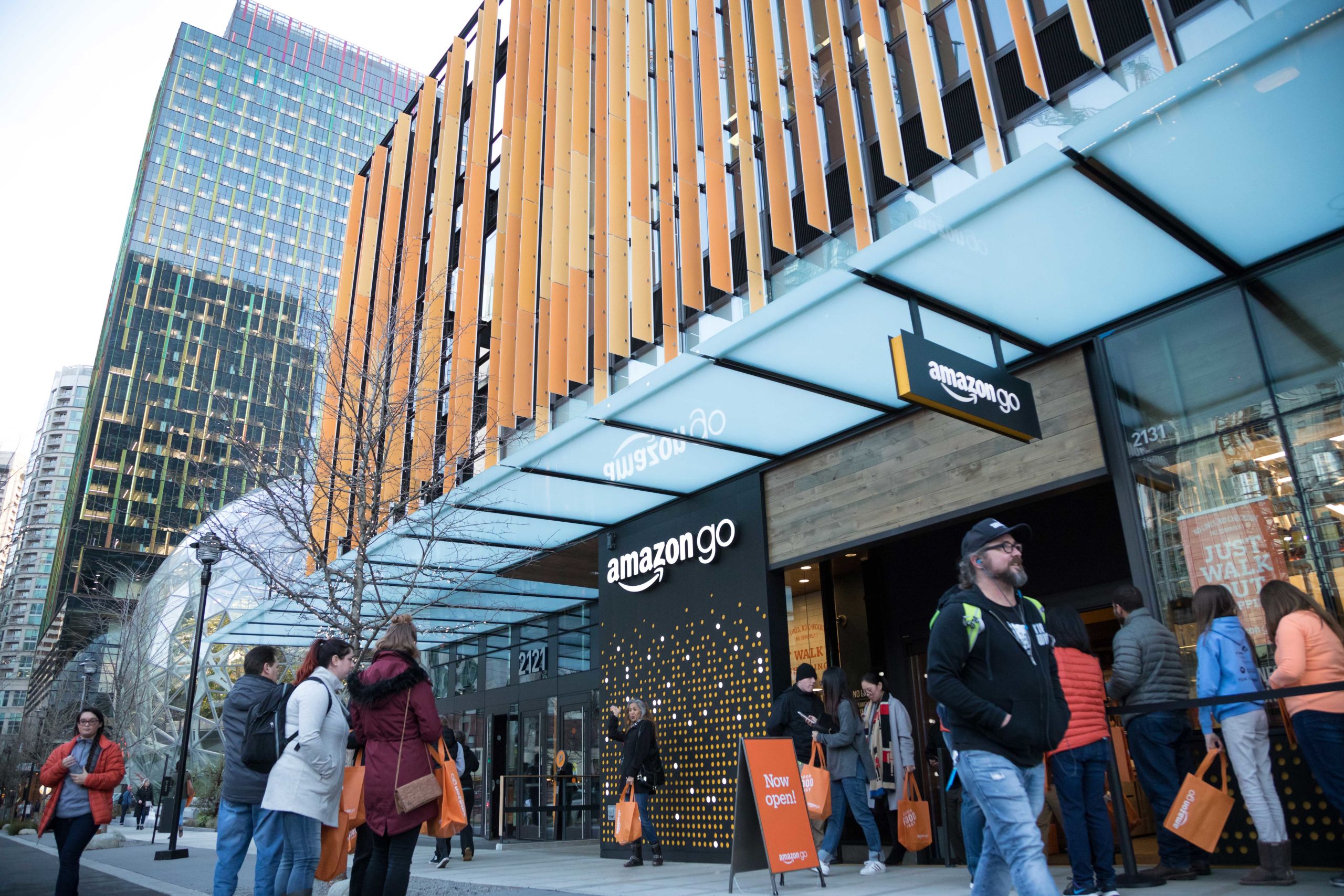
Amazon remains in prime position
It can come as no surprise which retailer, in the eyes of consumers, is the standout.
The great retail revolutionary of recent decades started as a bookseller and became ‘the everything store’.
This retailer not only offers a wide range of products, from food to fashion, it also provides services including TV, film and music streaming.
It’s Amazon – and consumers have welcomed it all with open arms.
Amazon has disrupted the traditional retail industry as much as it has consistently delighted shoppers. Its mission was epitomised by the acquisition of Whole Foods, which left the industry open-mouthed.
The 2,000 consumers who voted in this category – through a survey by Walnut (formerly ICM) – highlighted that Amazon’s low prices, vast range, convenience and popular Prime subscription service made it their favourite retailer.
Amazon has moved the dial in anticipating what consumers want in the future. Its Amazon Go cashless store generated headlines worldwide and the Echo voice-activated device has shifted it out of ‘traditional’ website-delivered ecommerce.
Research by Radiocentre suggests that, by the end of this year, 40% of UK households will own a smart speaker – up from 9% last June.
Amazon’s profits also climbed last year, reaching $3bn globally, as sales surged 31% to $177.9bn.
The fourth quarter brought a record 38% sales rise to $60.5bn – a stark contrast to the many traditional retailers that suffered falling sales over the festive period.
"More members joined Prime last year than in any previous year"
Prime mover
Amazon highlighted Prime’s contribution to its success – more members joined the scheme last year than in any previous year.
The retailer sent five billion items worldwide via Prime during 2017, and four million consumers signed up in one week during the golden quarter.
Meanwhile, Amazon boss Jeff Bezos underscored the success of Alexa, which “far exceeded” expectations. “We don’t see positive surprises of this magnitude very often,” Bezos admitted. “Expect us to double down.”
Raising the bar
Such words reinforce a consciousness that the giant will always be one step ahead. However, Amazon’s resonance with consumers has also led to a raising of the bar in UK retail.
Company chiefs once asked “What would Amazon do?” as they pondered strategy. Now the question is increasingly “What can we do that Amazon can’t?”
Don’t expect the pace of change to abate any time soon.
The Sorted International Growth Retailer
Winner: Asos

Asos sets the global standard
Asos has achieved great things in global retailing. From the US to Russia, its name is synonymous with fashion. As a brand and a marketplace, it has consistently succeeded wherever it has gone.
By targeting young consumers who share tastes with fashion that crosses borders, Asos has been a game-changer.
As one judge said: “The UK is starting to be a standout player in global etail, and Asos is an important part of that.”
Outstanding growth
The numbers speak for themselves. In its last full year, Asos enjoyed sales growth of 45% in Europe, 46% in the US and 52% in the rest of the world.
In the final month of that financial year, Asos’ websites drew 135.7 million visits and it had 15.4 million active customers. Of those, 10.2 million were in international territories.
"The UK is starting to be a standout player in global etail, and Asos is an important part of that"
Such a performance, as one of the judges said, made Asos a “clear winner” of Sorted International Growth Retailer.
But even for the biggest brands, there are always challenges.
One judge said: “Asos has had the bumps and it has come back again. Its performance has been amazing.
“It’s the outstanding international retailer in Britain and it’s an incredible story outside of Britain.”
Despite its success, Asos has described its market share of online sales as “modest, particularly in international markets” as it bids to “take advantage of the global opportunity”.
While many retail and etail businesses have got lost in translation overseas, Asos has shown them the way.
The Sorted International Growth Retailer
Mark of excellence: Net World Sports
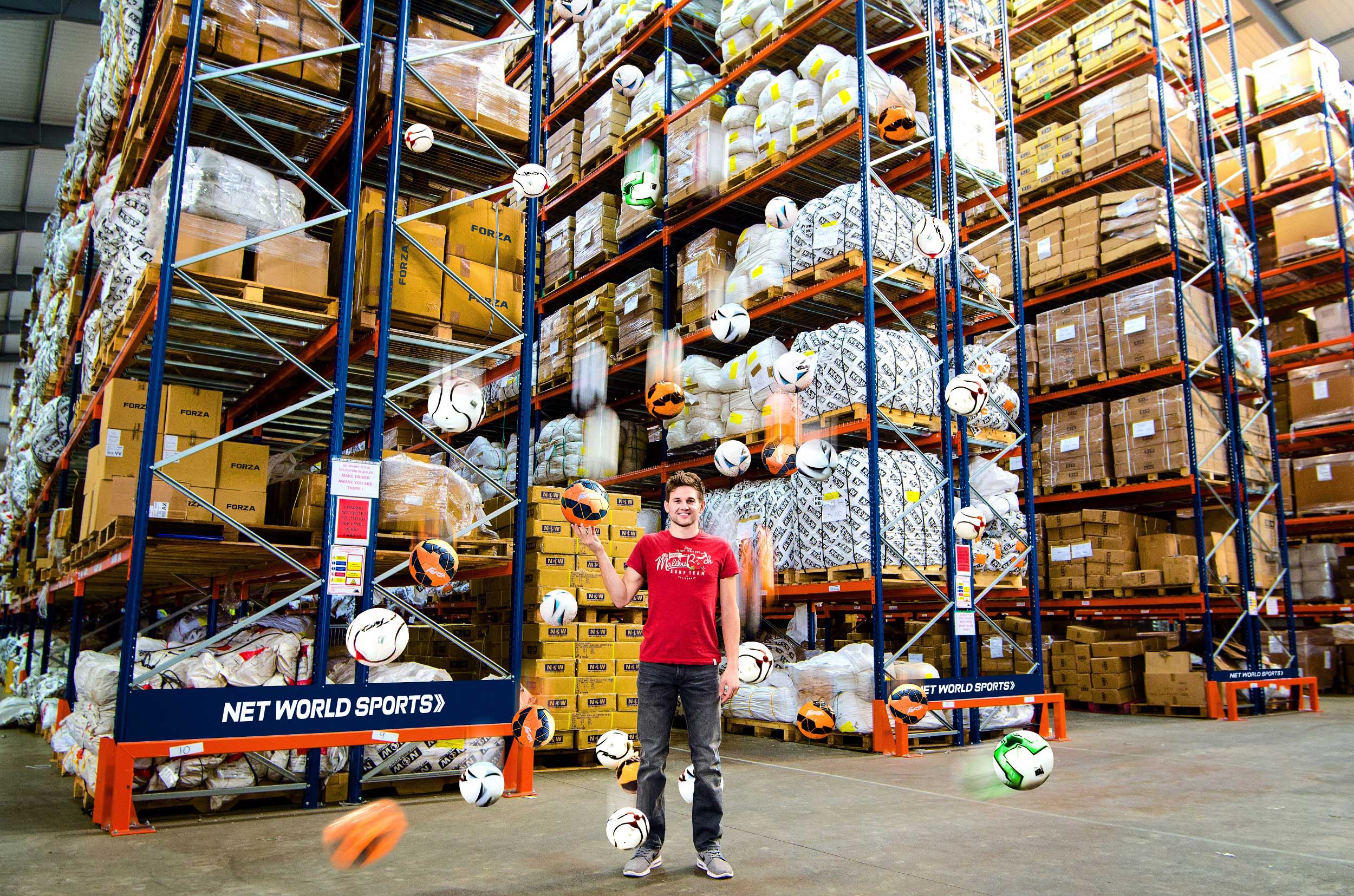
Alex Lovén is a natural born retailer. As a teenager, he saw a market among schoolmates for cricket bats and set up his own business – inadvertently breaking school rules that stipulated no item could be sold for more than £10.
It was the first of many lessons the young businessman learned before setting up etailer Net World Sports. Now, he’s managing director of a business that sells to many countries and is growing at a rate others would envy.
One judge commented: “I was absolutely intrigued by the story – the way he started off as a kid who was selling cricket bats out of his bedroom.
“Now he’s distributing to more than 100 countries, making £3m profit and growing around 70% a year. It’s a fantastic story.”
The OC&C Emerging Retailer
Winner: Gymshark

In 2012, a 19-year-old Ben Francis was tinkering with his sixth business idea.
He had always been entrepreneurial – his granddad honed that instinct by drafting the youngster in to help with his furnace-building business when Francis was 14. Inspired, Francis began testing his own ideas.
Ventures into customisable licence plates and mobile apps followed, but Francis found his stride when he married his passion for business with his obsession for the gym.
Realising no one made the type of kit he wanted to work out in, Francis asked his nan to teach him to sew. Less than six years later, Francis, now 25, is at the helm of skyrocketing global phenomenon Gymshark – forecast to hit £100m sales in 2018.
Such success has allowed Francis to swap delivery driving for jet-setting – last year he attended Gymshark’s pop-up shop openings in New York, Los Angeles, Sydney and Paris.
Pop-up strategy
But why hasn’t Gymshark established a permanent bricks-and-mortar presence? “It’s not like we have a concentration of fans in one area,” Francis explains. “They’re everywhere and we try our utmost to treat every single customer the same.
“Doing pop-ups this way offers exclusivity, while allowing us to get everywhere and speak to everyone.”
Francis refers to Gymshark shoppers as “fans” – and while that could be seen as a grandiose way to speak about consumers, the term feels apt for the millennial-focused fitness brand’s customers.
Since its launch, Gymshark has amassed five million social media followers and 800,000 active customers.
Francis has a vision that is distinctly different from retail’s status quo – making Gymshark stand out to the judges. Perhaps it is such disruptive designs that also make Francis more wary of who is behind him than who is in front.
"Francis has a vision that is distinctly different from retail’s status quo – making Gymshark stand out to the judges"
“We’re not worried about Adidas or Nike or Lululemon, because we’re coming towards them super-fast,” says Francis. “The thing you should be aware of is the 14-year-old sat in his bedroom making the next big thing.”
Francis may be changing the game in sportswear retail, but in his personal life he is a creature of habit.
He eats the same three meals every day – a bacon sandwich for breakfast, a Nando’s lemon and herb double chicken burger with peri peri chips for lunch and fish and chips for dinner.
From his lunch order to his business strategy, Francis is clear on what he wants – to make Gymshark a household name.
CATEGORY RETAILERS
The Audit Partnership Best Grocer
Winner: Tesco
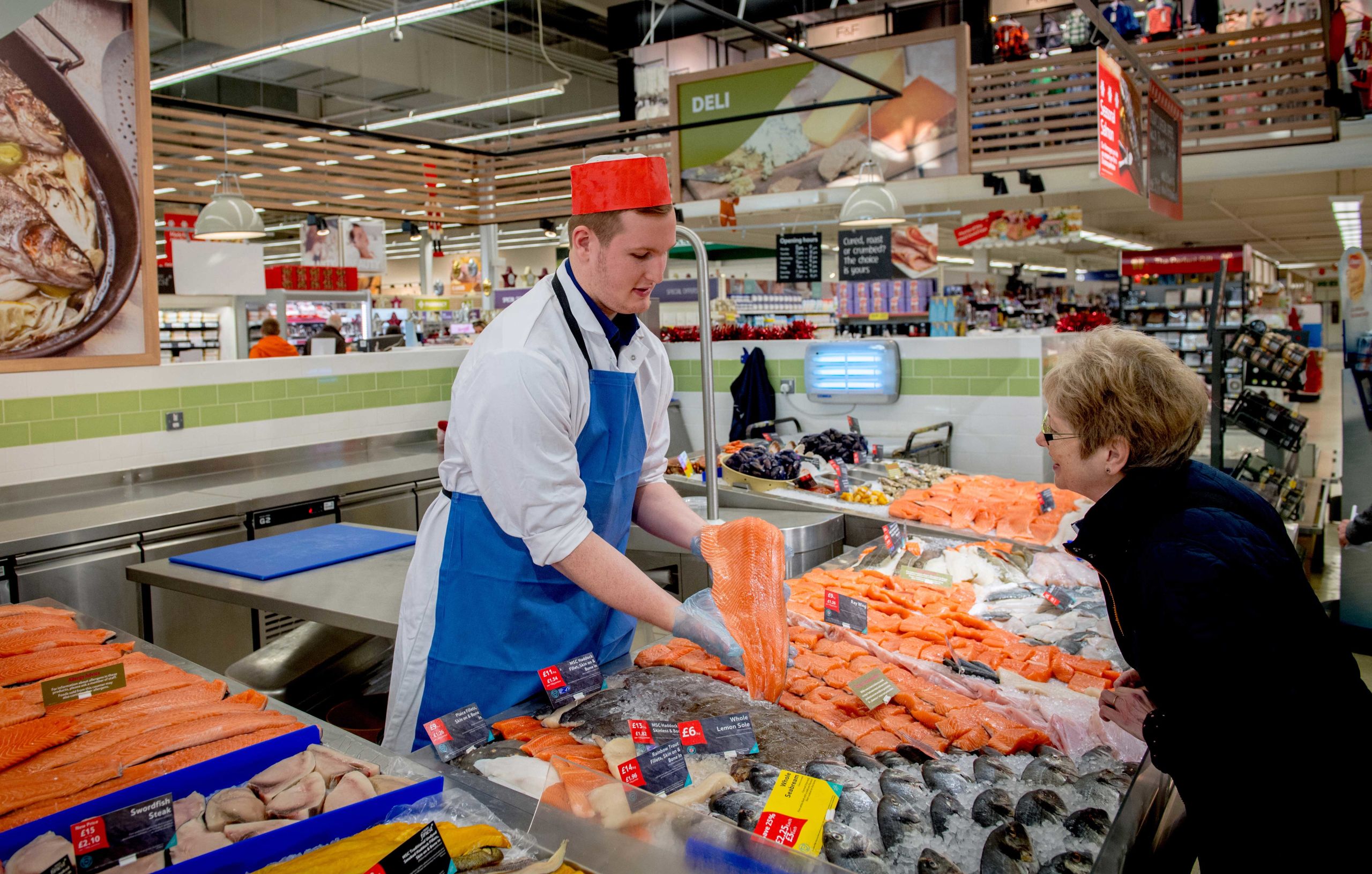
Tesco’s landmark year
Tesco’s challenges in recent years were daunting, but the grocery market leader, under the leadership of chief executive Dave Lewis, has not only faced up to them but made great advances.
The scale of the changes, the success achieved and the renewed vigour evident at the food giant over the past year won over the judges.
Tesco’s recent troubles – a perception it had lost touch with its core customers and revelations over its accountancy practices – spelled a low point in its history. The supermarket giant never lost its throne, but it did lose some of its sheen.
And, as with the rest of the big four supermarket groups, it has also had the fierce competition of the discounters to contend with.
Far from ducking these points, in the three-and-a-half years since he’s been in charge, Lewis has faced them head on.
“Tesco had a bad reputation with suppliers and customers,” one judge remarked. “I think grasping that nettle and turning it back around is very impressive.”
"The scale of the changes, the success achieved and the renewed vigour evident at the food giant over the past year won over the judges"
Tesco’s half-year results in October 2017 revealed a 27% uplift in profits, after seven consecutive quarters of sales growth.
One judge said: “What it has done over a three-year period with everything that’s been going on is impressive. It has won back the hearts and minds of its core customer.”
Never far from the news, Tesco set the retail world alight last January by announcing one of the biggest mergers in recent history, with wholesaler Booker.
To the industry it was more than just a deal – it was a sign that Tesco was taking bold steps to reset its status as a dominant player.
With the turnaround well under way and sales, profits and loyalty all returning, Tesco was judged to be firmly back on track.
The past year has shown that Tesco remains a powerful force in grocery – and is once again on the front foot.
Perceived challenges to its relevance have been addressed, and the scale of what has been achieved so far make it the grocery winner.
The Audit Partnership Best Grocer
Mark of excellence: Morrisons
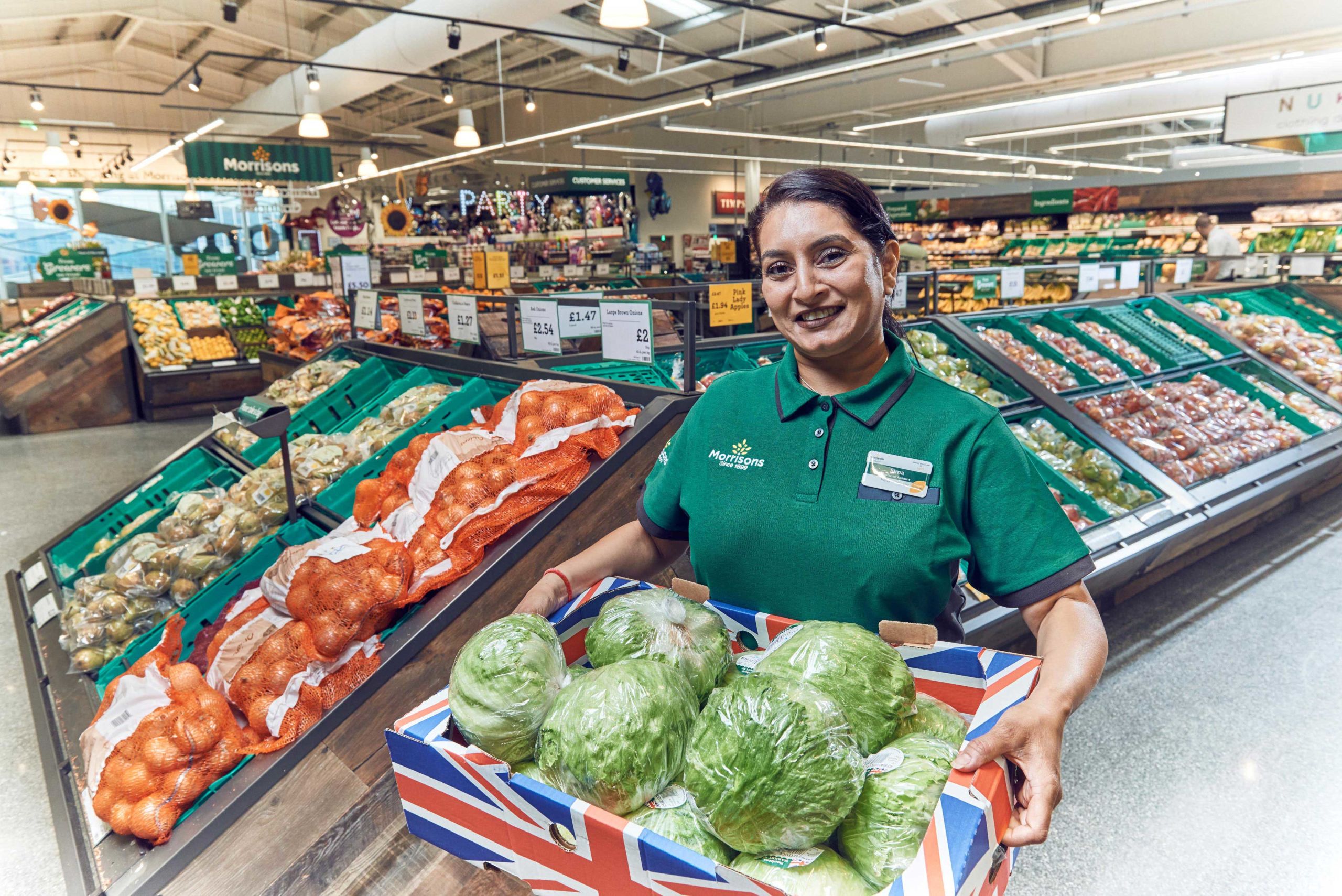
For also proving itself capable of turning negatives into positives, the judges felt it would be unfair to overlook the impressive advances of Morrisons under chief executive David Potts.
As well as re-establishing its reputation in some of the basics, such as value, Morrisons has shown foresight through supply tie-ups with Amazon and McColl’s that advanced its online appeal and made the most of its vertically integrated model.
As one judge put it: “Morrisons was seen to be behind the curve online and then, from out of nowhere, it went and did a deal with the biggest etailer.”
And it was not just Potts’ success in making Morrisons a serious digital player that caught the judges’ eyes.
The wider turnaround in the core business, one judge said, also deserved to be recognised.
“The way it has turned things round with its growth plan is so impressive. It has really bounced back.”
Best Value Retailer
Winner: Aldi
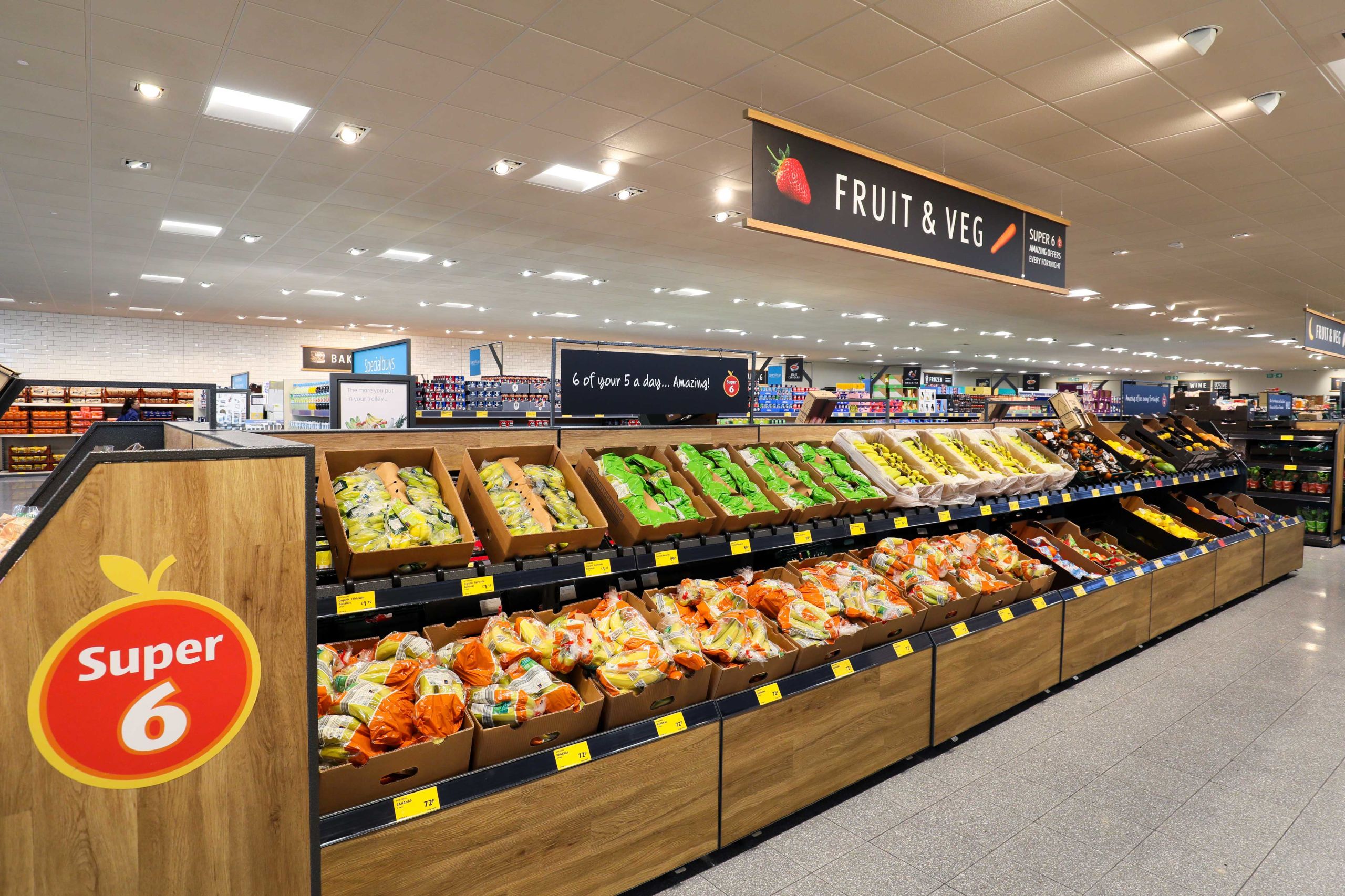
Aldi powers ahead
Changing the grocery sector for good has been a dramatic achievement by Aldi.
The retailer is not a new entrant to the UK – its first store opened in the 1990s – but when the downturn of 2008 kicked in, contributing to a transformation of shopper attitudes, Aldi saw its chance. And in the past year it has further burnished its credentials.
Aldi, which now has more than 700 stores and 29,000 employees, last year usurped the Co-op to claim the number-five spot in the grocery rankings, according to Kantar data.
By maintaining its success, and continuing to evolve through its outstanding retail skills, deep customer understanding and excellent execution of strategy, Aldi emerged as this year’s Best Value Retailer.
Sometimes, especially in the value retail sector, the name of the game is to stick to the business purpose and to do so really well.
In Aldi’s case, that has meant maintaining an edge on the rest of the market, and it has focused unerringly in the past year on keeping its price advantage – the grocer lays claim to being 15.2% cheaper than its nearest mainstream rival.
As one judge observes, Aldi “does value in all its dimensions. It’s not just the [financial] value it offers, it’s the quality it delivers for that value. It’s a great retailer.
“If you are looking for value, regardless of your demographic, you will trust Aldi.”
Game-changer
The effect of Aldi’s rise in the market, the judging panel agreed, has been a pivotal moment for UK shoppers.
“It has changed the market so much and has overcome some big challenges. The amount that it has enabled UK consumers to save against the big four is amazing,” one judge commented.
“Just for sheer scale and performance Aldi had to win it.”
The retailer’s market share is still rising – it reached the 6.9% mark in January, Kantar Worldpanel data showed. The market monitor also noted that sales of Aldi’s premium Specially Selected range climbed by £26m.”
"Aldi has maintained its success, and continued to evolve through its outstanding retail skills, deep customer understanding and excellent execution of strategy"
The big four may well have to be renamed the big five if Aldi’s growth carries on at such a rate.
Its success is indicative not just of what the customer sees on the supermarket aisle, but a slick behind-the-scenes set-up.
It is no secret that the retailer has established an impressive supply chain, has skilful buying teams and keeps an eye on costs in order to deliver low prices.
One judge said: “Aldi has really looked at its supply chain and kept the model simple and efficient.
“It tells me Aldi is going to be sustainable in the future, as well as being a dominant business now.”
Not so long ago, it seemed the big four would always dominate the market. Aldi has shown that grocery can be revolutionised with a focus on what value really means.
This past year has shown Aldi at its best. Its relentless focus on what shoppers value makes it the clear winner of Best Value Retailer.
The Webhelp Speciality Retailer
Winner: Card Factory
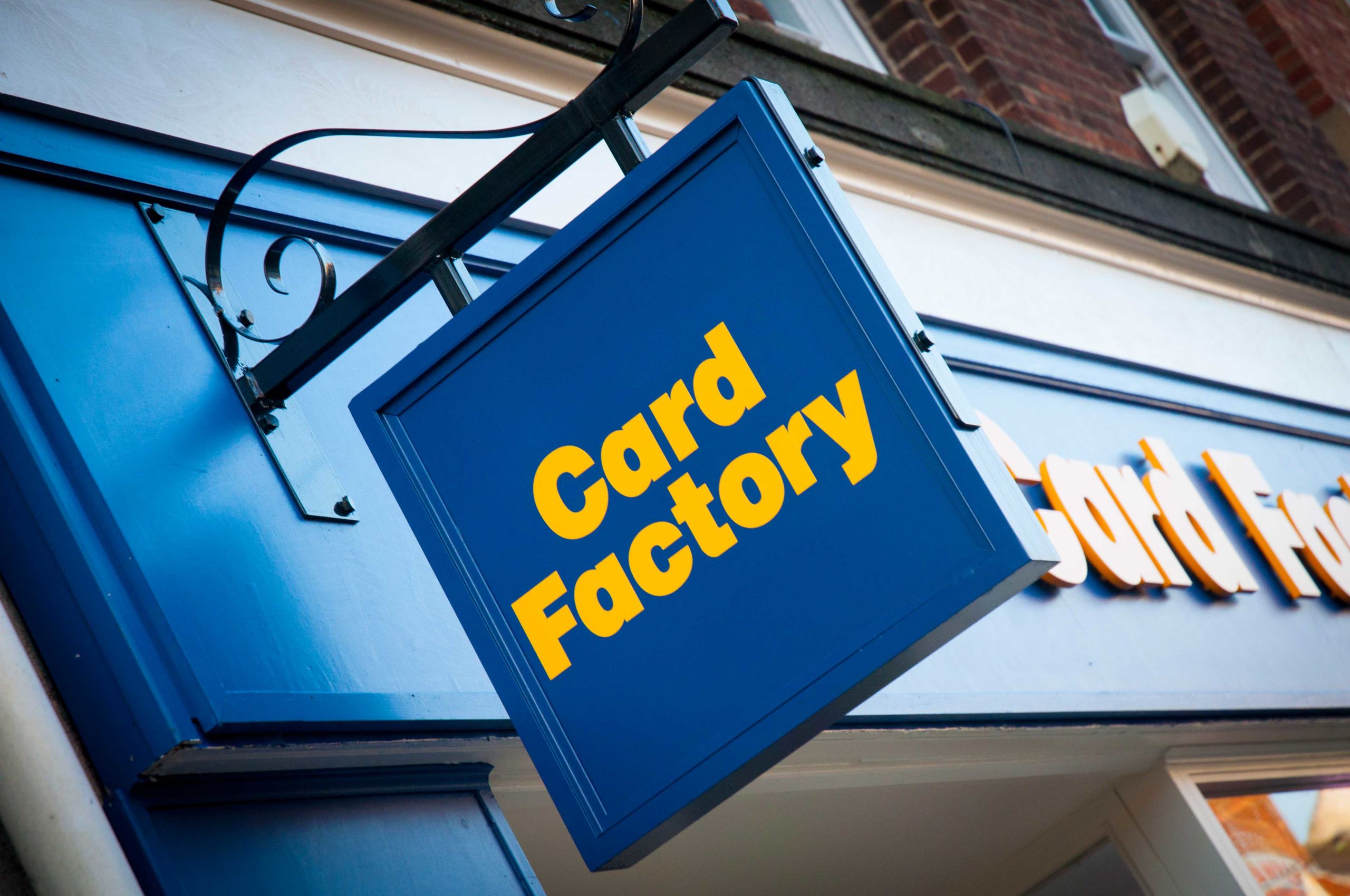
Card Factory has a gift for disruption
The £1.4bn greetings card industry is in some ways unusual in retailing.
Greetings cards are available just about everywhere – in supermarkets, newsagents, charity shops, discount stores, art galleries, record shops and even cafes, as well as from hundreds of online sellers.
But despite the breadth of competition, this sector is led by specialists – and Card Factory has consistently been a leader of the pack.
As one judge observed: “There are so many people selling cards and gifts now, and there have been so many new entrants online, but still Card Factory has managed to stay profitable and keep market share.”
Specialist with scale
In this extremely busy market, not only has Card Factory continued to dominate, but it has also disrupted.
Card Factory is a specialist with scale, reflected in its near ubiquitous presence on the high street.
Operating in the UK and Ireland, the retailer has more than 900 stores, employs 7,000 people and hires a further 6,000 during peak season.
It accounts for 32.6% of the overall market by volume and is still expanding. Moving into new lines, such as gifts and candles, has enabled the retailer to increase average spend.
Key to Card Factory’s success has been its vertically integrated model, which allows the retailer to control costs and handle operations from product design, sourcing and printing, through to warehousing and distribution.
Integrated advantage
This advantage has been the key to the retailer’s growth story – and to some impressive results in a difficult climate.
In its last full year, Card Factory generated a 4.3% sales rise, while underlying operating profit was up 3%.
One judge noted that the business “tends to keep a low profile and get on with things.” But added: “It has managed to do well consistently and I think it deserves to be recognised.”
Card Factory was also on the shortlist for value retailer of the year, but it was its performance in its specialist market despite fierce competition that stood out in judges’ minds.
One judge dubbed Card Factory “the ultimate speciality retailer.”
"Despite the breadth of competition Card Factory has consistently been a leader of the pack"
Despite sluggish footfall on much of the high street and in shopping centres, Card Factory is still growing.
The retailer has been adding to its estate by 50 branches a year and has begun opening in the Republic of Ireland.
Stores remain at the heart of the business, and an ongoing roll-out is one of its four pillars of growth, along with continued like-for-like sales progress, business efficiencies and digital development.
While the online personalised greetings market remains small at present, Card Factory’s chiefs see opportunities there for the business.
The website GettingPersonal.co.uk has created a chance for the group to build sales in categories that are complementary to cards.
The fact Card Factory has remained a leader in its specialism, given the fragmented nature of its market, is testament to the retailer’s focus, customer understanding and powerful business model.
The Infor Best Fashion Retailer
Winner: Matchesfashion

A stellar year for Matchesfashion
Fashion is facing tough times, so the judges were delighted with the high standard of diverse entries in this competitive category. But when it came to meeting the criteria, one retailer stood out.
“Matchesfashion.com has had an amazing year,” said one judge, who admitted she found the retailer and its offer “addictive”.
“It has everything – the variety, the stylist tool, the content.”
The luxury retailer, which celebrated its 30th anniversary in 2017, now offers more than 400 established and new designers, and delivers to more than 190 countries. It also operates a 24-hour fashion concierge tool, London stores and private shopping appointments at its luxury London town house.
In 2016 it launched the Matchesfashion.com app, which within a year was generating a substantial proportion of revenue.
It also offers Daily Style – shoppable content driven by an artificial intelligence platform – and ‘buy now, wear now’ 90-minute delivery in London.
Global reach
It has international scale, too, and 2017 brought the launch of fully optimised French and Korean language websites. Non-UK sales now account for 80% of total online revenue.
Anticipating further global expansion, the retailer is investing in distribution, including a new site next to Heathrow that will increase capacity to four million shipments a year by 2020, while maintaining the high standards it has become known for through its iconic packaging.
"Matchesfashion impressed with its deep customer understanding and excellent standard of service"
The judges were impressed by a 61% increase in revenue in the most recently disclosed year and EBITDA of £19m.
“That is a powerful performance,” one remarked. Another said: “Profits speak volumes.”
Noting the sale of a majority stake to Apax last September, the judges said Matchesfashion has created a great internal culture and praised its vision and young, tech-savvy team. It also impressed with its deep customer understanding and excellent standard of service.
The judges were confident that Matchesfashion could achieve its ambition to be the number-one global luxury shopping platform.
“I would back it against its rivals,” said one judge, while another concluded: “It is the one to watch for the future.”
The Infor Best Fashion Retailer
Mark of excellence: Joules

Through its bricks-and-clicks strategy, Joules delivered strong sales growth across its online, retail and wholesale businesses in 2017.
The premium retailer is focused on expanding its store network, opening 11 stores in 2017 to take its total to 108, and investing in its wholesale business to support further international expansion. It added US department stores Nordstrom and Von Maur last year.
Last summer, it signed a licensing deal with furniture retailer DFS to create its first sofa collection – its biggest licensing partnership to date.
One judge said: “Every new category it does is absolutely on brand. It is knocking spots off its rivals.
“I think it is an extraordinarily well joined-up business with great clarity of who its customer is and what its aesthetic is, and successfully importing that across its product categories.”
INNOVATION
The Itab Best New Store
Winner: Debenhams Stevenage
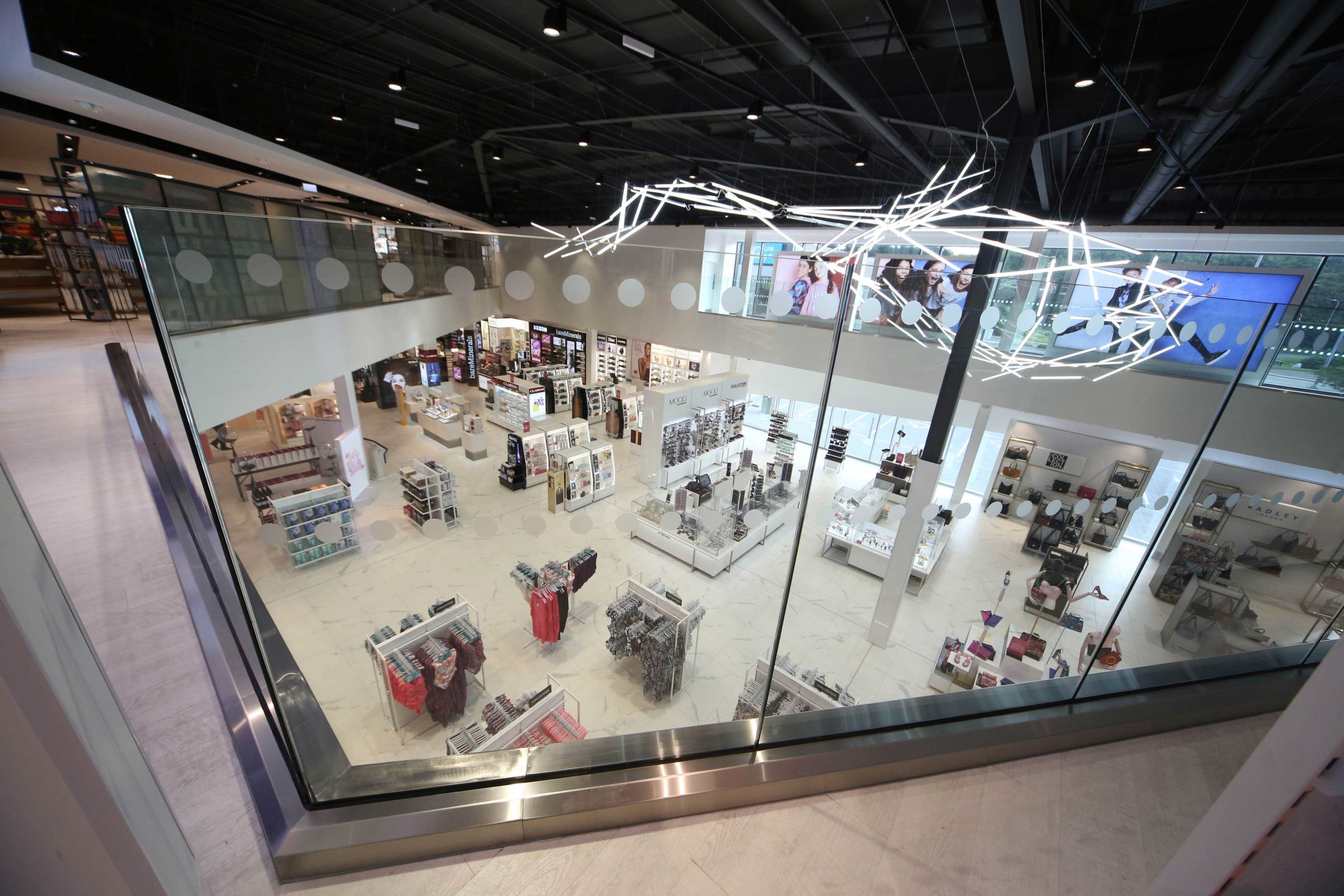
Fresh take for Debenhams
Debenhams’ Stevenage branch marks a new direction for the department store group.
From the moment the shopper arrives at Roaring Meg retail park, the Debenhams store catches the eye thanks to its long, grey, asymmetric form.
Head indoors and a small atrium leads into the main body of the shop, where floor-to-ceiling windows allow daylight to flood the accessories and beauty department – an open-plan affair where products are immediately accessible and equipment is kept at a low level.
Chief executive Sergio Bucher said that, when he took the reins, he challenged the store design team to do something different but stay within tight existing budgets.
As such, the light displays are emblematic – there are several light sculptures composed of suspended neon tubes, which are leftovers from a Debenhams Oxford Street Christmas display.
"The light displays are emblematic – there are several light sculptures composed of suspended neon tubes"
The rest of the ground floor is devoted to womenswear. Here the ceiling lowers, but suspended light sculptures make things feel a long way from mid-market department store norms.
Also gone are the mid-shop walls across the floor, helping to banish the idea of walkways and shop-in-shops that are usually expected in a department store.
Heading upstairs, the shopper arrives on a floor with menswear, children’s and home – each of which are open-plan with low equipment, ensuring easy navigation.
The click-and-collect desk at the back is perhaps the highlight, blending online and offline.
When an order is placed via the Debenhams website, a list of items is produced on the basis of ‘If you like this, you’ll love this’. When the online shopper arrives, a rail is produced based on their shopping history.
There are many elements in this store that set it apart as a clear winner in a hotly contested field.
The Itab Best New Store
Mark of excellence: Fiorucci
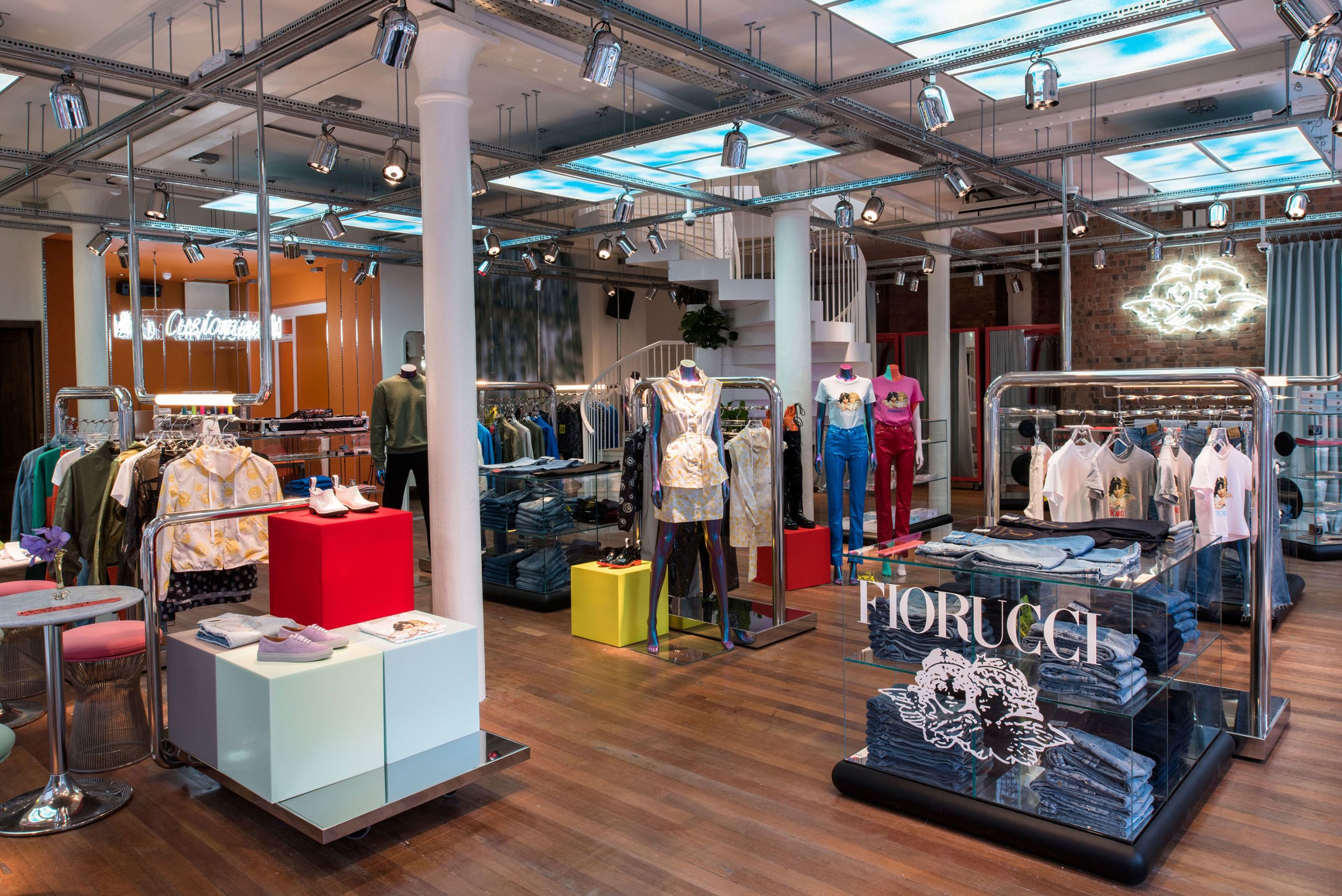
When a 1970s brand icon like Fiorucci takes a two-floor space in London’s Soho, expectations will inevitably run high.
With an interior designed by London-based consultancy Brinkworth, this store takes New York disco, applies a tincture of fairground glamour and seasons with a few up-to-the-moment items such as an in-store personalisation corner.
This is a store that takes a rose-tinted view of the 1970s, from the louche, circular divan in bright red to chromed display rails suspended from the ceiling.
The level of attention to detail stood out in the store design and made it deserving of a mark of excellence.
The American Express Own-Brand Range or Product
Winner: Go Outdoors

Go Outdoors pedals ahead
Go Outdoors first put its foot on the pedal to develop own-brand bicycles with its first two hardtail models back in 2013.
It was a brave decision to enter a market dominated by manufacturers pitching at cycling buffs who take their sport very seriously.
Whether there was a market for value own-brand products would have been questioned by some.
Exponential growth
The retailer, now owned by JD Sports, sold several hundred Calibre bikes in that first year.
Last year, from a range extended to 13 models, sales grew exponentially. This year, it plans to add three more models.
It takes a lot to impress cyclists, especially with a new range among so many well-known and well-trusted ranges already on the market. Gaining a reputation and following is even harder.
Middle of the market
Go Outdoors is not trying to compete at the very top end of the market, where bikes can cost thousands of pounds.
However, as one judge noted, even medium-priced bikes can be a hard sell.
“If you’re a bike nut, you will look at reviews and see what people are saying about it. Go Outdoors has managed to get a lot of approval from cyclists.”
"The longer the Calibre brand has run, the braver Go Outdoors has been and the further up the price scale it has ventured"
The longer the Calibre brand has run, the braver Go Outdoors has been and the further up the price scale it has ventured.
An important moment was reached when Go Outdoors released its first bike priced at £1,000 – the Calibre Bossnut.
The model was “aimed at riders who wanted to experience full suspension bikes for the first time and take on their local trail centre with a new confidence”, the retailer said.
That riskier venture has paid off. Last year the Bossnut V2 won the Singletrack Reader Award for best bike under £1,000.
Deserved recognition
The Retail Week judges were not all cyclists themselves, but they all appreciated the significance of such results.
As one judge remarked: “It’s a very good example of how to do an own-brand product and how it can work even when you’re competing with the specialists.”
Of its forecast total bicycle sales for 2018, Go Outdoors estimates that Calibre will account for more than half – surely unthinkable when it set out on the own-brand cycling journey five years ago.
But Go Outdoors has again shown its prowess at own-brand development.
Marketing or Advertising Campaign of the Year
Winner: Asos

Asos campaign is a thing of beauty
Creating a campaign to launch its first own-brand make-up line while boosting awareness of its beauty proposition was not enough for Asos.
The etailer went one step further to create something that would shake up a category that had not changed much in decades.
For that reason, the panel of judges hailed this “disruptive” campaign for its insightful strategy, bold creative work and for ignoring industry stereotypes.
Raising awareness
While Asos has sold beauty products since 2004, awareness of the range online was low.
With the beauty market expected to be worth £322bn by 2020, Asos was keen to tap into its potential – but needed a fresh approach.
Operating on a budget, it set out to not only drive awareness of the category and the brands it stocked, but to build momentum for the launch of Asos make-up.
A strategy was developed around the creative and playful attitude that today’s 20-somethings have towards make-up.
Asos highlighted that beauty is no longer a quest for perfection or conformity, but is about self-expression, being experimental and having fun.
"Asos highlighted that beauty is no longer a quest for perfection or conformity, but is about self-expression, being experimental and having fun"
Inclusive campaign
Reinforcing its belief that make-up is for everyone, Asos renamed the category Face + Body, making it gender-neutral and removing suggestions that make-up is only about being beautiful by using the strapline ‘Go Play’.
The campaign featured a range of men and women sporting diverse looks, allowing Asos to support not only its new range but its partner brands.
The campaign spanned a variety of social channels, included Asos’ first outdoor campaign. A hero film was delivered in YouTube pre-roll and paid-for social in the UK and Germany.
A Snapchat lens was also created so people could “try on” some of the wild looks, while an Instagram competition encouraged people to submit their looks using #asosgoplay.
Compelling results
The results were “pretty compelling”, said the judges.
Initial data showed strong view-through rate and a reduction in cost per video view compared to Asos benchmarks, while the Snapchat lens was used millions of times.
After five weeks, visits to the Face + Body page soared and the number of active Asos customers shopping the category rose steeply.
In a tough category, Asos won because it took an innovative approach to engaging a hard-to-reach age group.
As one judge concluded: “It was a fantastic campaign and it delivered results.”
Customer Innovation
Winner: Tesco with Spoon Guru

Tesco and Spoon Guru’s class act
From vegan to gluten-free, food that meets special dietary requirements is not always easy to find online. Spoon Guru’s partnership with Tesco has changed that.
Despite increasing numbers of people in the UK now following some kind of exclusion diet – the £800m ‘free from’ market alone is growing 40% year on year – online shopping can be a frustrating experience that is anything but convenient, leaving shoppers struggling to find foods that match their needs.
That is why Tesco’s tie-up with pioneering food search platform Spoon Guru won praise from the judges.
Industry leader
The initiative taps directly into that growing market, positioning Tesco as a leader in the area of dietary requirements such as vegan, gluten-free and nut-free.
“I like that it actually solves a customer problem,” one judge said.
Launched in April 2015, Spoon Guru has a simple mission: to ensure retailers are offering the right foods to customers, whatever their dietary requirements.
Combining artificial intelligence data processing with nutritional expertise and consumer insight, it helps retailers cope with changing customer behaviours.
Its partnership with Tesco, launched last May, created a free tailored service for shoppers by reclassifying the grocer’s entire product range using 180 dietary tags.
Opening up the range
Tesco’s vegan range has been boosted from just 162 products to 16,000, while gluten-free has gone from 327 items to 24,000. A can of chopped tomatoes has gone from having “a few tags” to hundreds.
The approach has also provided Tesco with a deeper understanding of its range by showing that 71% of its products are vegetarian, 53% are gluten-free and 31% are low-sugar.
"The initiative positions Tesco as a leader in the area of dietary requirements such as vegan, gluten-free and nut-free"
The technology has helped with KPIs including search volume, conversion from search to purchase and basket size. Long term, it is expected to drive loyalty among customers with dietary requirements.
Spoon Guru worked with Tesco’s Innovation and Wellness Programme teams to develop the partnership. Its tech team and nutritionists oversaw implementation, offering support pre- and post-launch.
The company continues to work with Tesco’s marketing team, which is seeking to promote the new capabilities as a major selling point to customers.
This innovation, which addressed a particular need so well, won the support of the judges as a great example of how retailers and partners can make the most of the opportunities that arise as consumer habits change.
The Cognizant Digital Pioneer
Winner: Screwfix

Screwfix powers up its digital offer
Not a business ever to stand still, Screwfix has once again provided a masterclass in deploying digital technology to exceed the expectations of its customers.
The judges were unanimous in their praise of the trade specialist’s implementation of a new digital platform which, in the retailer’s words, was designed to “take convenience to the next level”.
“Screwfix is so tuned into who its customer is and trying to make life easier for them,” one judge observed.
Minimal disruption
Screwfix already had a market-leading multichannel offer, but in 2017 it began improving its digital proposition.
The upgrades were made without any disruption to service – a point the panel found highly impressive.
Improvements included the new Screwfix App, which has been upgraded to address trade customers’ dislike of paperwork.
Customers can now keep everything within the app – their Screwfix card, shopping lists, receipts, product catalogues – to avoid paperwork.
This fine-tuning has been welcomed by users, with average order value up significantly, while its efficiency saves time at the till – a key consideration for trade shoppers.
"The results so far have been outstanding. Enhanced conversion rates are driving sales, mobile sales have shot up and the site now receives 2.5 million unique users a week"
One judge described the app’s performance as “stunning”.
Displaying its understanding that time is money for customers, Screwfix’s click-and-collect service allows collection within as little as one minute.
At the same time, an upgrade of its digital platform has allowed click-and-collect digital kiosks to be piloted – another method of cutting down waiting times.
The new kiosks have boosted Screwfix’s net promoter score, while stores using them have seen click-and-collect sales rise impressively.
Digital browsers have also been trialled, allowing customers to browse 29,000 products – including its online range – and make purchases.
Enhanced conversion
Screwfix reports that the browsers have changed the way its customers shop by making it easier to purchase.
And Screwfix.com has been optimised for mobile, while one-page checkout has shortened the customer journey.
The results so far have been outstanding. Enhanced conversion rates are driving sales, mobile sales have shot up and the site now receives 2.5 million unique users a week.
Supporting its overall business strategy – ‘Here When You Need Us’ – the continual evolution of Screwfix’s digital offer helped the retailer increase sales by 18.7% in the six months to July.
Such achievements prove that an unwavering focus on the customer, providing them with what they need, when they need it and how they need it, is a recipe for success.
PARTNER COMMENT
The Retail Week Awards is a highlight of the year for us at Salesforce. It’s an incredible evening that brings together the best of British retail to celebrate the industry’s top leaders, innovators and change-makers.
These awards play an important part in showcasing the best in the business, recognising industry leaders, innovators and change-makers that are driving this sector forwards.
Celebrating these achievements and moving the dial in terms of expectations will ensure the UK retail industry is always seen as world class.
Choosing this year’s winners was by no means an easy task. The shortlisted entrants all demonstrate a laser focus on the customer experience and place the customer at the heart of everything they do.
However, there is consistent message throughout all of the winners’ stories: they each have a definitive and clear purpose.
They have a strong understanding of what customer challenge they are trying to solve and have built their business with that in mind.
"The shortlisted entrants all demonstrate a laser focus on the customer experience and place the customer at the heart of everything they do"
The winners across the categories range from iconic British brands to disruptive brands that will continue to thrive as they will always take a customer-centric approach, in turn creating both happy and loyal customers.
As we look to the year ahead there are a number of challenges as well as opportunities. Delivering personal and consistent experiences across channels will be a critical point in the customer journey, it’s where brands will win or lose.
Embracing new technologies like AI to help deliver this experience will also be a key factor in the success of your brand.
I’d like to take this opportunity to congratulate all the finalists and winners on their achievements over the past year. It has been a pleasure to be part of this with you. Thank you also to the judges too for their time and commitment to the awards.
I’m already looking forward to seeing what the coming year will bring.

Daniel Pell, senior vice-president EMEA, Salesforce
JUDGES AND DIRECTORY
Retail Week Awards 2018 judges
- Nick Beighton, chief executive, Asos
- David Blakeney, director of store development, House of Fraser
- Beth Butterwick, chief executive, Karen Millen
- Caroline Casey-Norbury, head of store concept and innovation, The Co-operative
- Gillian Drakeford, country retail manager, Ikea UK and Ireland
- Elizabeth Fagan, senior vice-president and managing director, Boots
- Ian Filby, chief executive, DFS
- Peter Franks, director of brand and store development, Primark
- Alan Giles, associate fellow, Saïd Business School, University of Oxford
- Vanessa Gold, managing director, Ann Summers
- Derek Harding, group finance director, Shop Direct
- Suzanne Harlow, former group trading director, Debenhams
- Daniel Pell, area vice-president of marketing cloud EMEA, Salesforce
- Richard Pennycook, chairman, The Hut Group, Fenwick
- John Roberts, founder, AO.com
- Stephen Robertson, chairman, Retail Economics
- Peter Ruis, former chief executive, Jigsaw
- Mike Shearwood, chief executive, Clarks International
- Guy Smith, group design director, Arcadia
- Angela Spindler, chief executive, N Brown Group
- Rob Templeman, chairman, Gala Coral
- Phil Whittle, retail director, Schuh
- Darren Williams, managing director, DW Exec Consulting
- Chris Wood, director of retail UK, Salesforce
Retail Week Awards 2018
Recognising today’s retail leaders and shining a spotlight on the strategies that clinched their awards
Written by Retail Week
Produced by Nicola Harrison, Emily Kearns
James Knowles and Luke Tugby
In partnership with Salesforce

